Danehy Park Miyawaki Forest
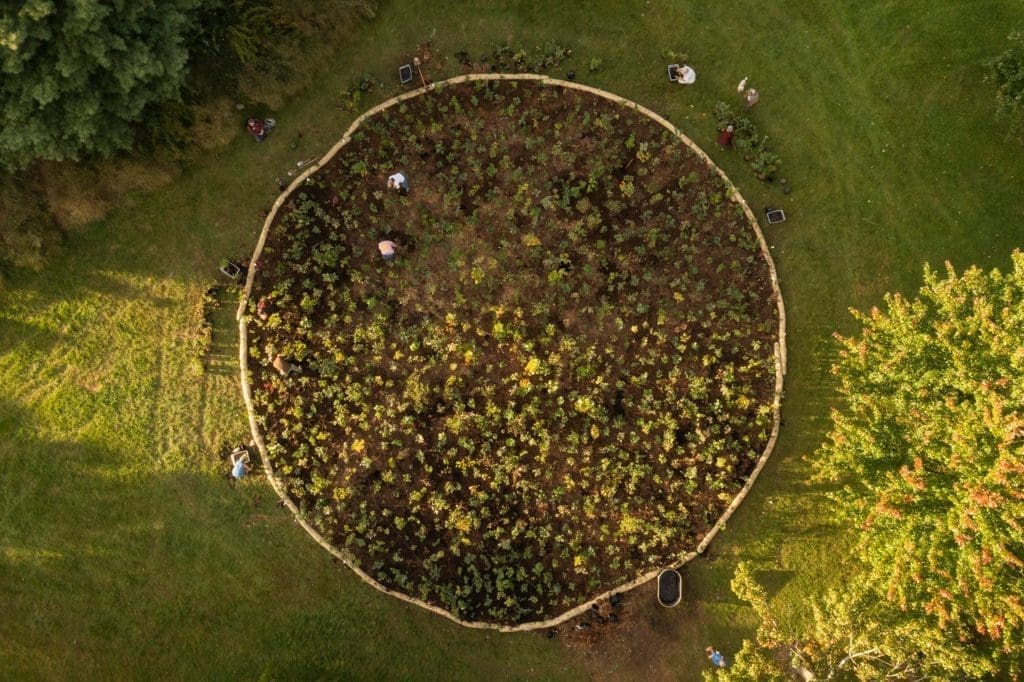
Our Miyawaki Forest at Danehy Park in North Cambridge was planted successfully on September 25, 2021 with the help of many fantastic volunteers. The forest is the first example of a Miyawaki Forest in Cambridge, MA and in the Northeast US as a whole. It is wonderful to see the community come together in the spirit of restoration and stewardship, and you can continue to get involved with this forest and other projects!
About the Forest
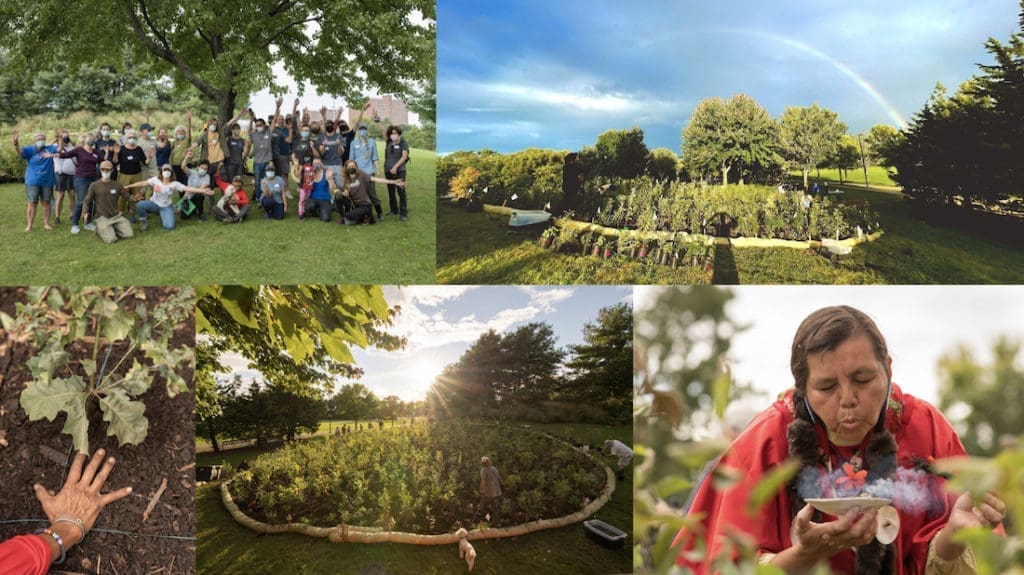
The Miyawaki Forest is an ultra dense, biodiverse pocket forest that recreates the complexity of natural forests and the relationships and processes that help them grow strong and resilient. By giving home to a vast array of native species, they boost the biodiversity of the area and nurture pollinators, supporting and restoring ecosystems. They sequester carbon in the soil, reduce air pollution and soil contamination, improve water absorption to buffer against flooding and erosion, and cool the surrounding area to mitigate the urban heat island effect.
They also create a living classroom for people and communities to learn about native ecology, engage in stewardship, and experience the interconnectedness of the natural world.
It has been so moving to see the enthusiasm for this project from individuals and organizations here and elsewhere. In addition to stewarding the Danehy Park Miyawaki Forest in the coming years, we are envisioning what comes next for the metro-Boston area, and cities and towns across the country and world. This forest, which was the first in Cambridge and in the entire Northeast USA, will certainly not be the last!
Related Resources and Links
- Our Miyawaki Forest Program page
- Our Greene-Rose Park Miyawaki Forest project page
- The story of the Danehy Park Miyawaki Forest from our partners at SUGi
- Bio4Climate’s Miyawaki Forest video playlist
- ‘Tiny Forests with Big Benefits‘ – A feature of the Danehy Park Forest and other Miyawaki plantings in The New York Times
- ‘A Little Forest with a Towering Task‘ – Short documentary on our Cambridge forests and the ‘grounded hope’ behind the work
- An interview on the Danehy Park Miyawaki Forest upon its planting
- A blog post from Maya Dutta on the process behind the Danehy Park Forest
- A feature in the Harvard Crimson on the Danehy Park Forest’s first year
- Mini-Forest Revolution: Using the Miyawaki Method to Rapidly Rewild the World by Hannah Lewis, published by Chelsea Green in June 2022
Photos
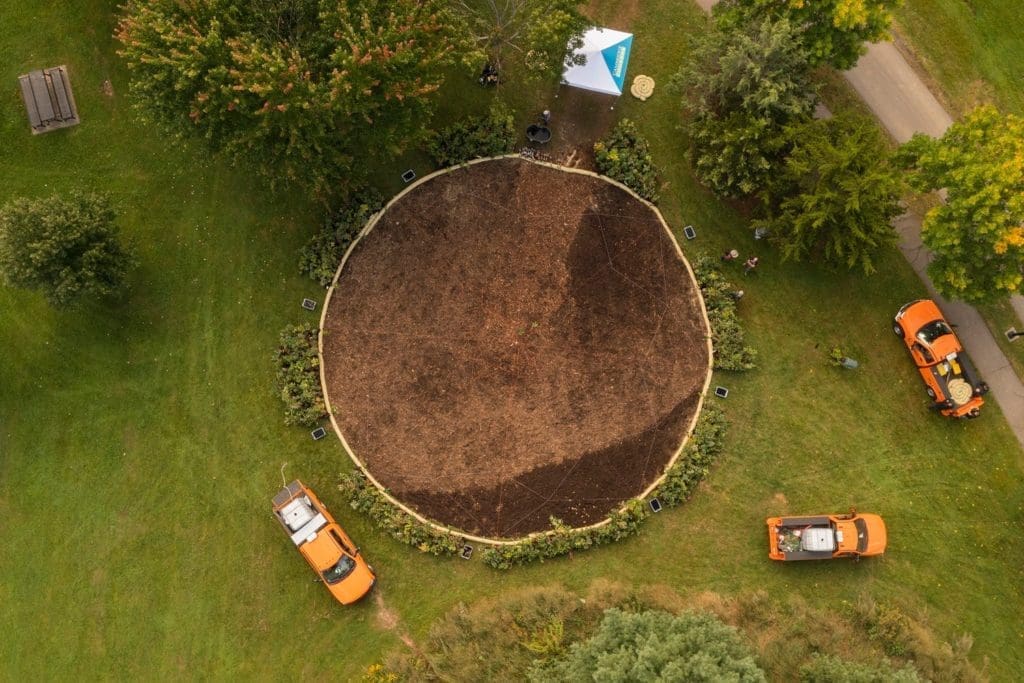

Planting in September, 2021
(Images: Dino Kuznik for Danehy Park Miyawaki Forest funded by SUGi)
Fall 2023 Update
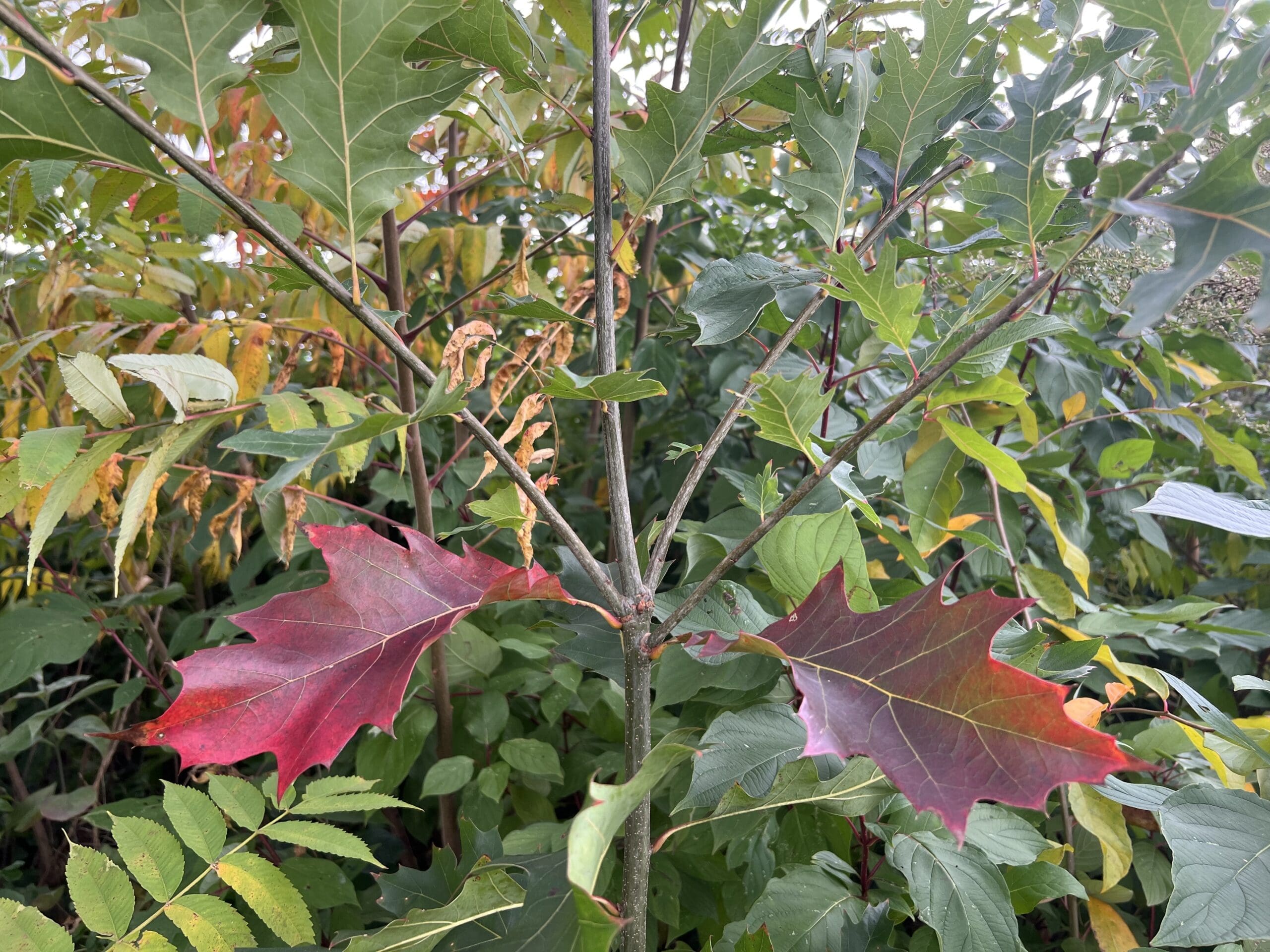
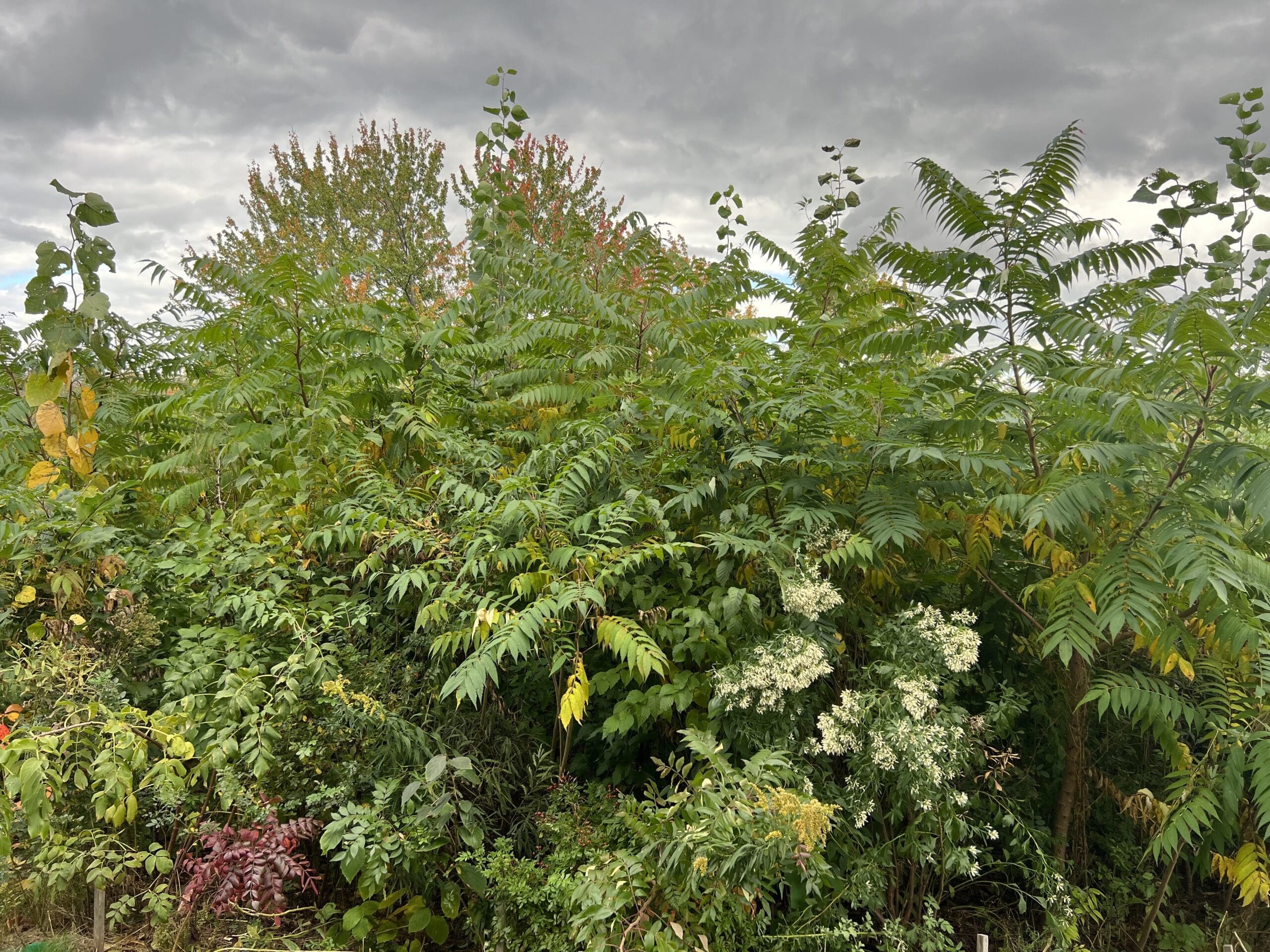
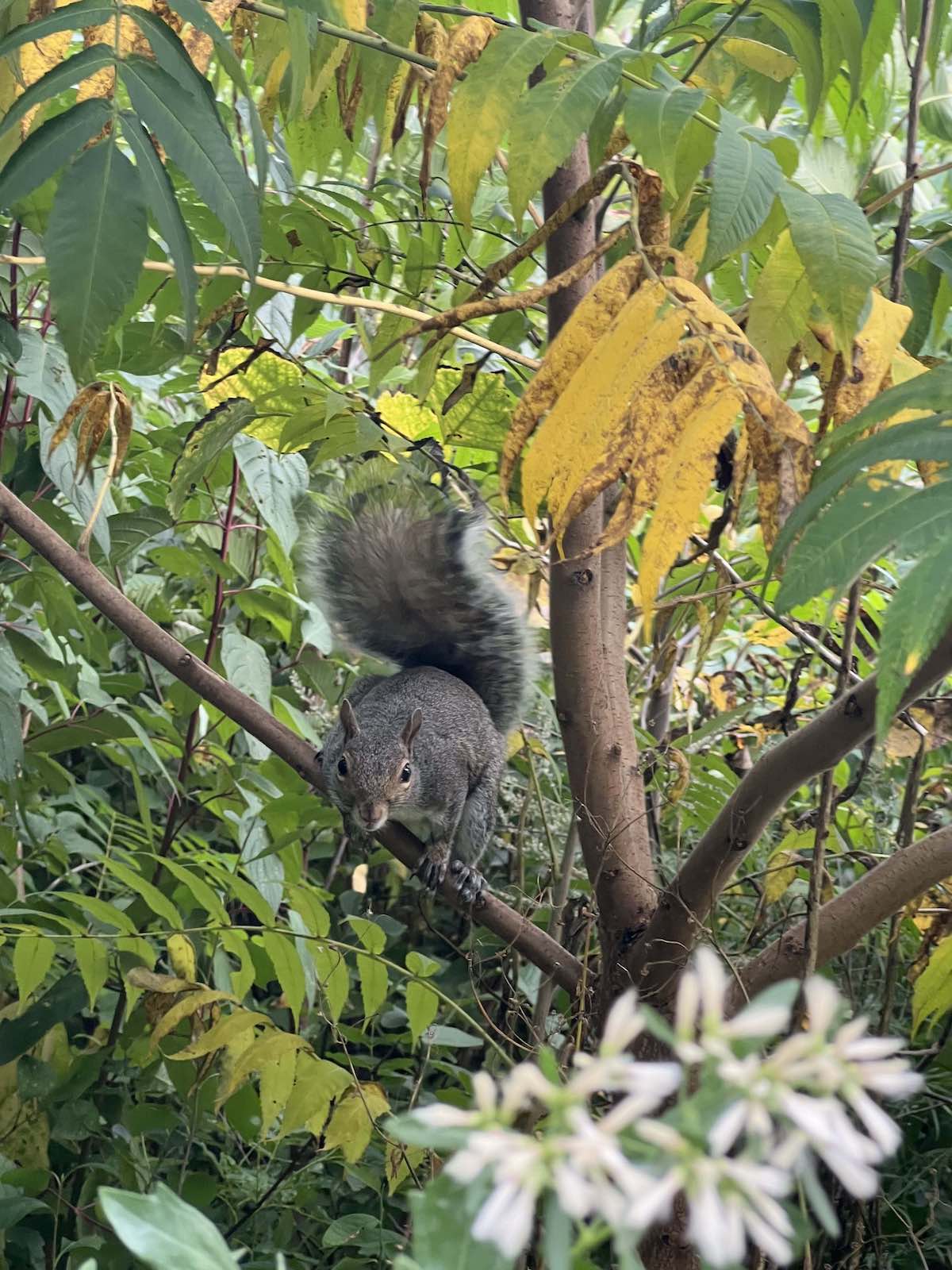
Spring 2023 Update
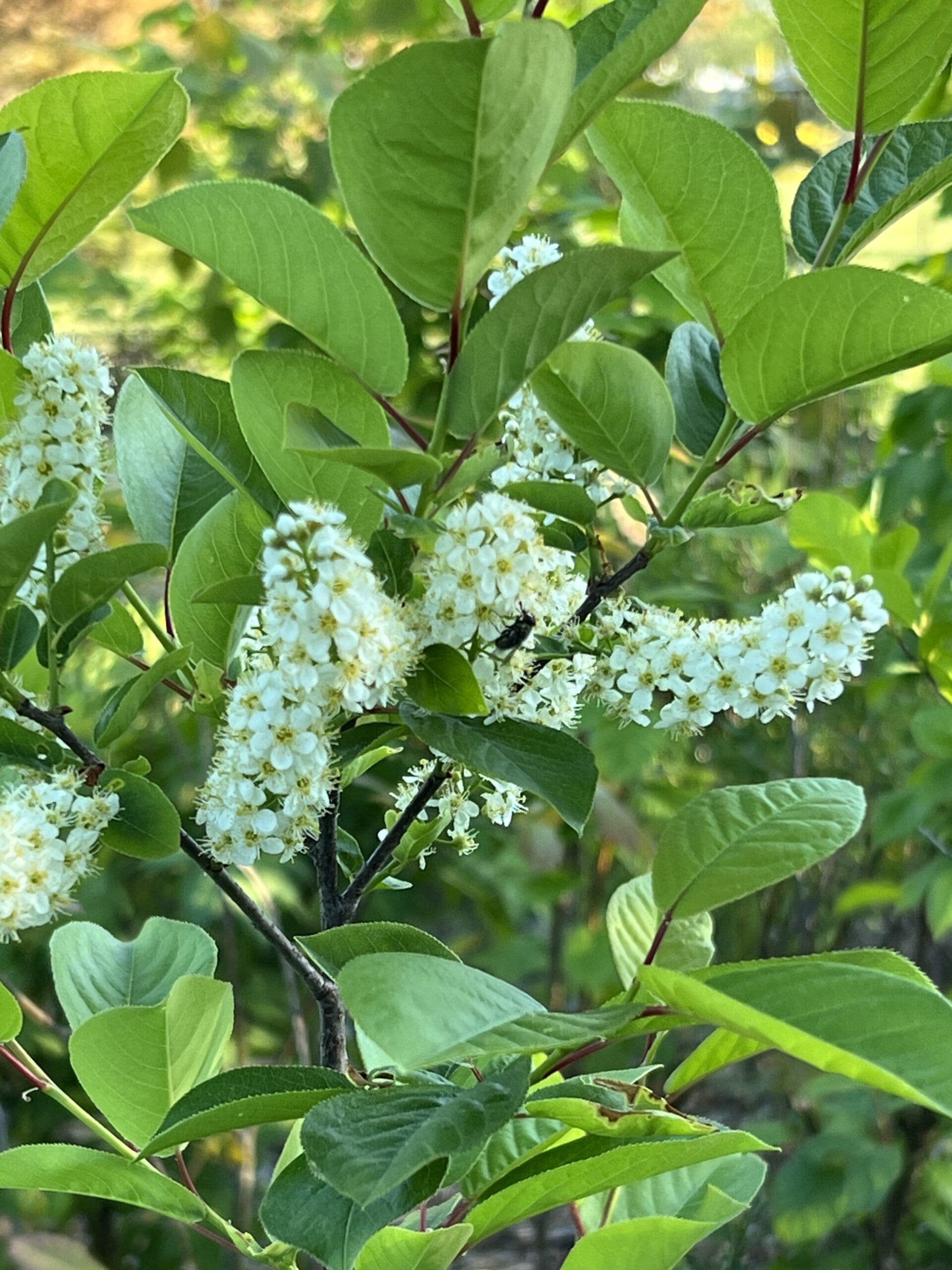
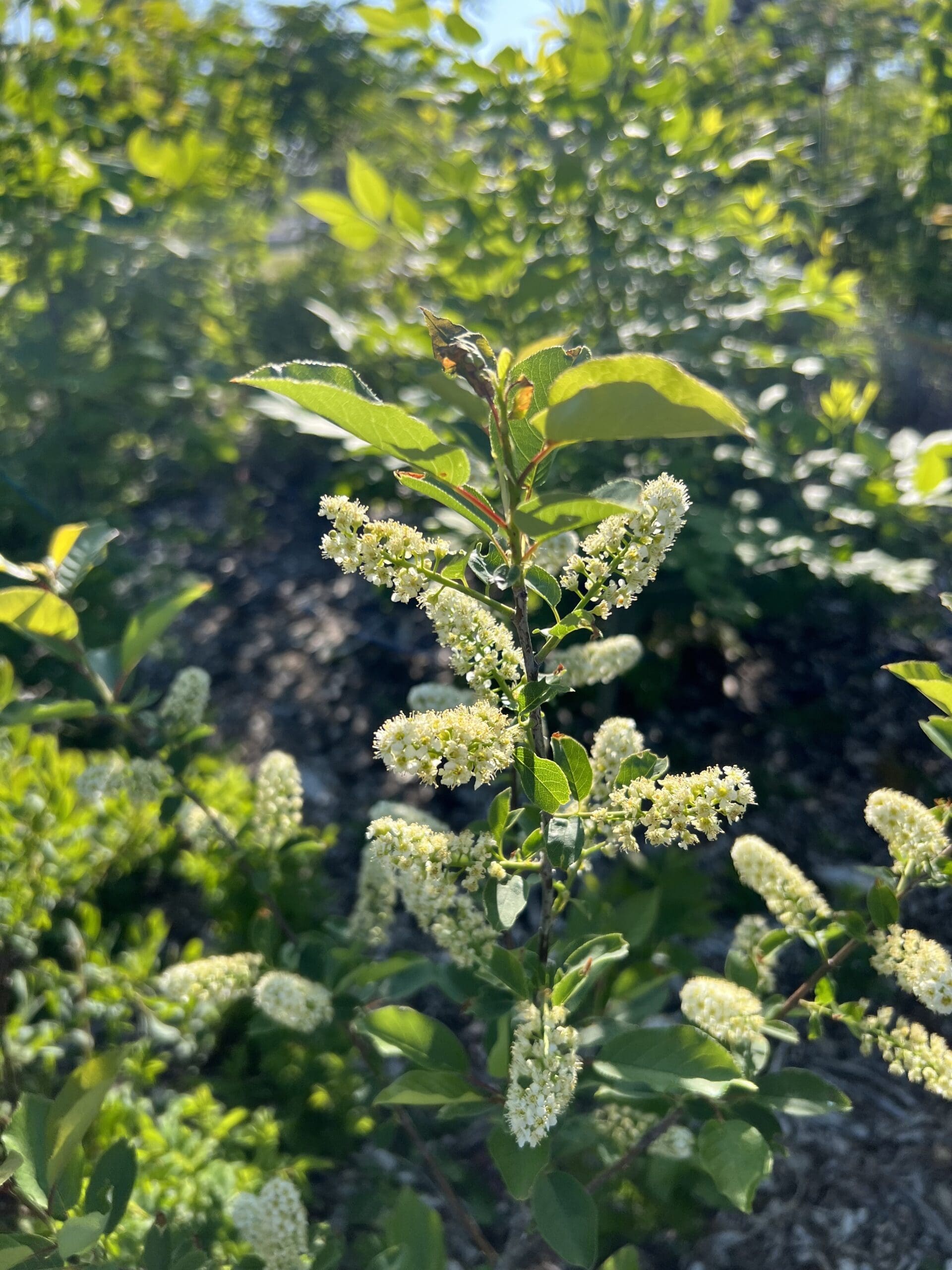
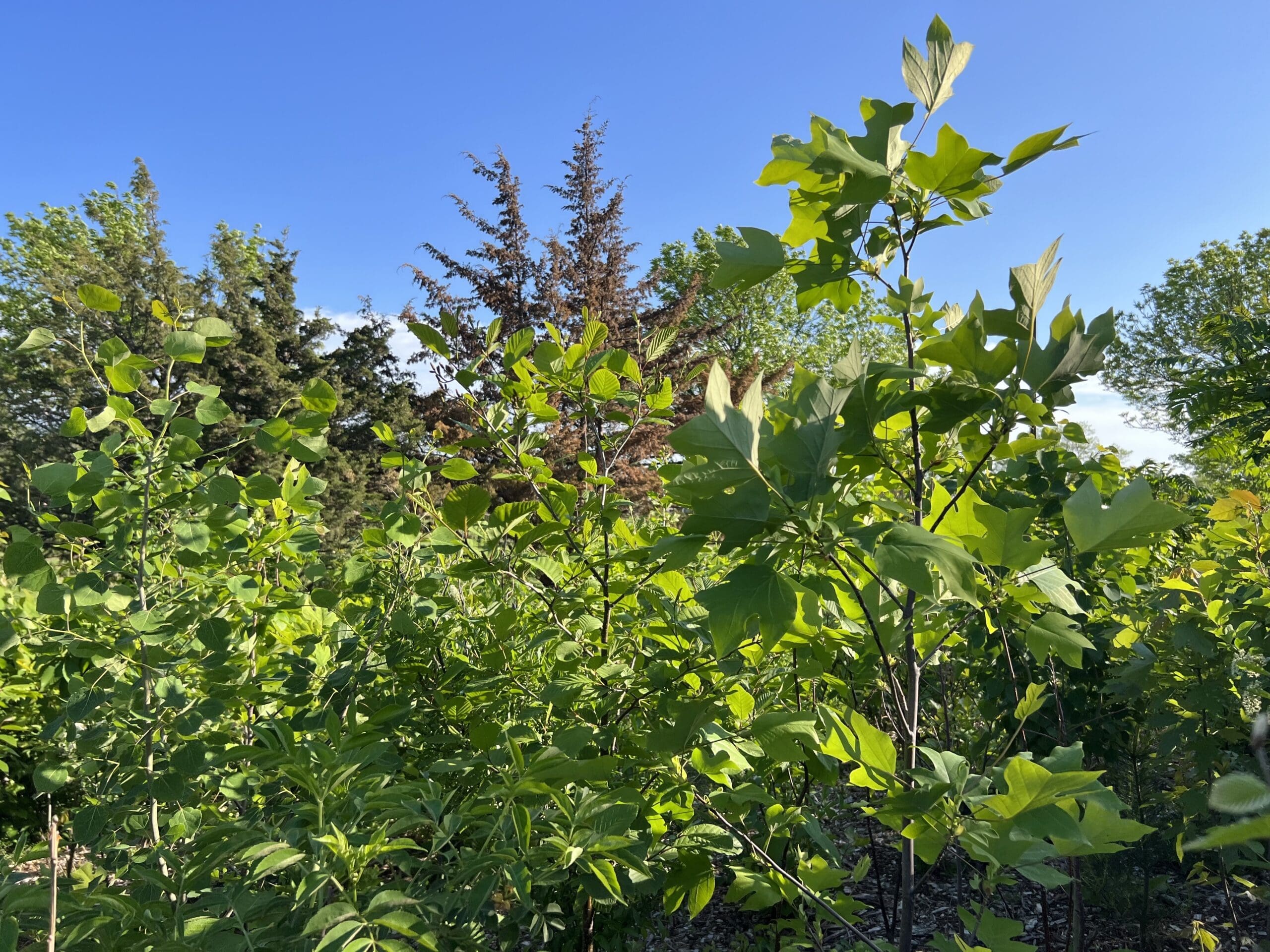
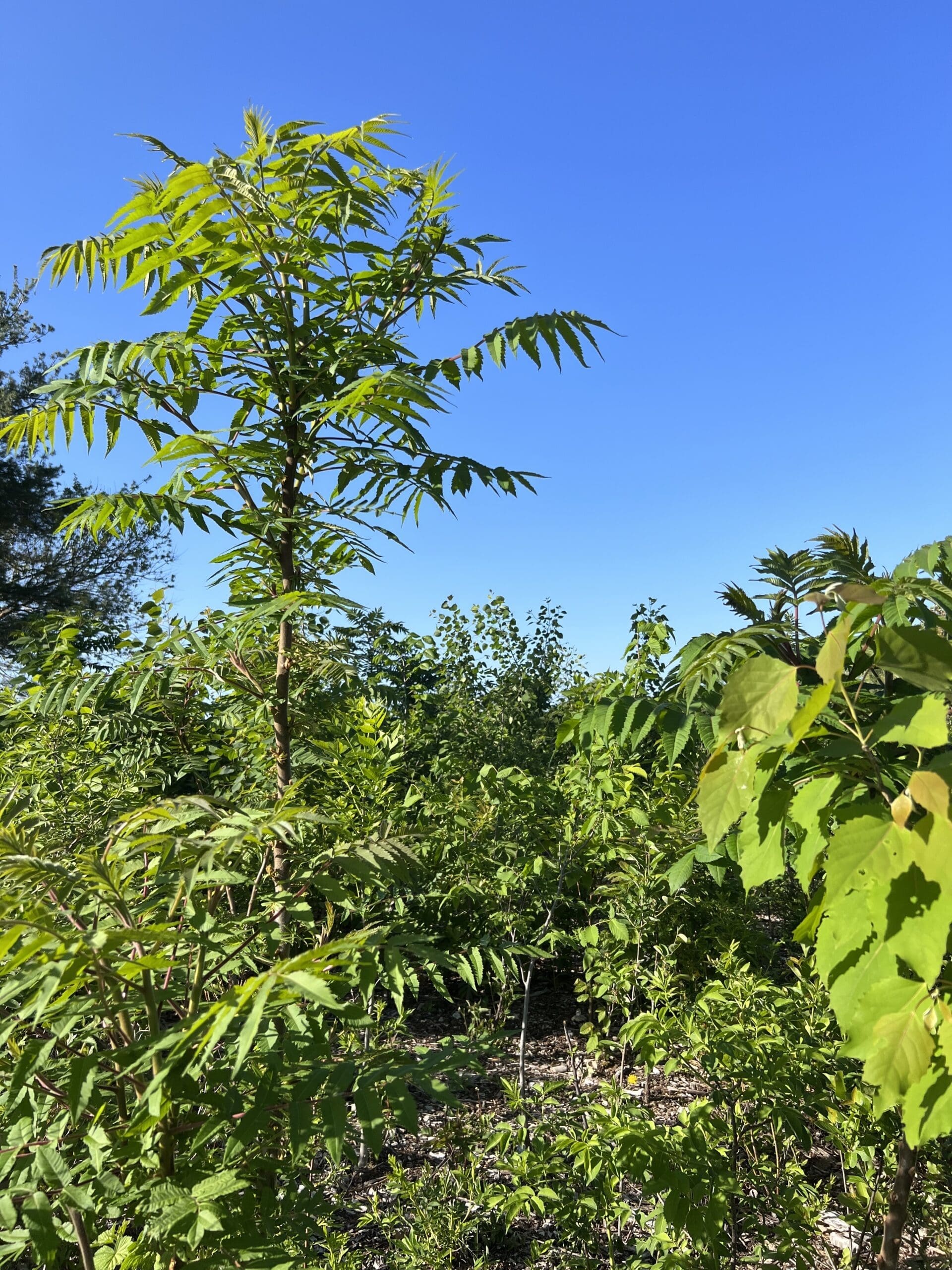
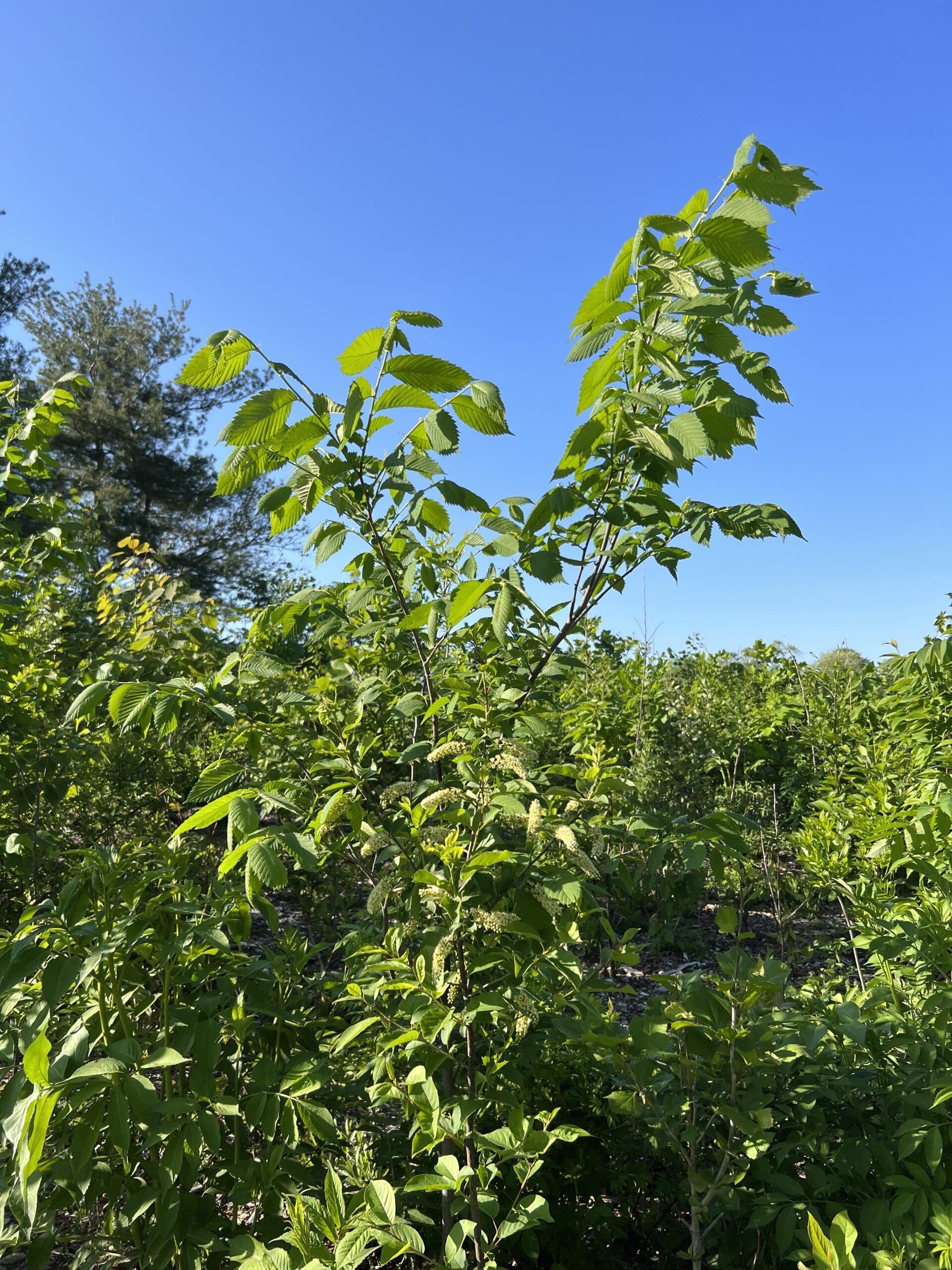
Spring 2022 Update
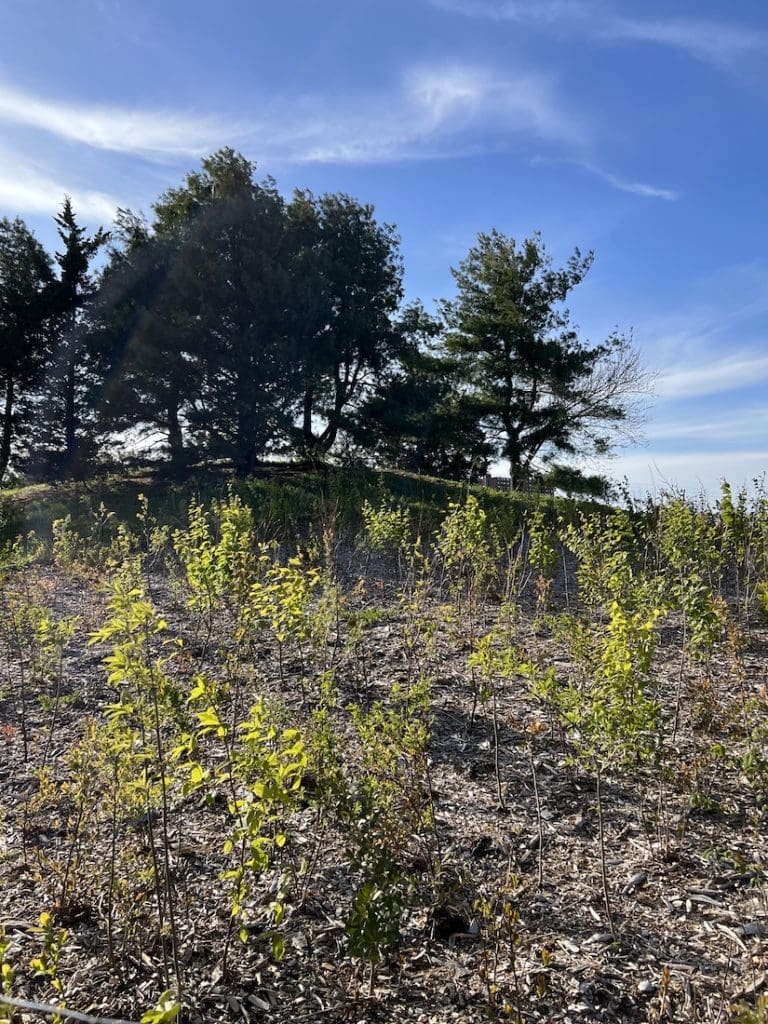
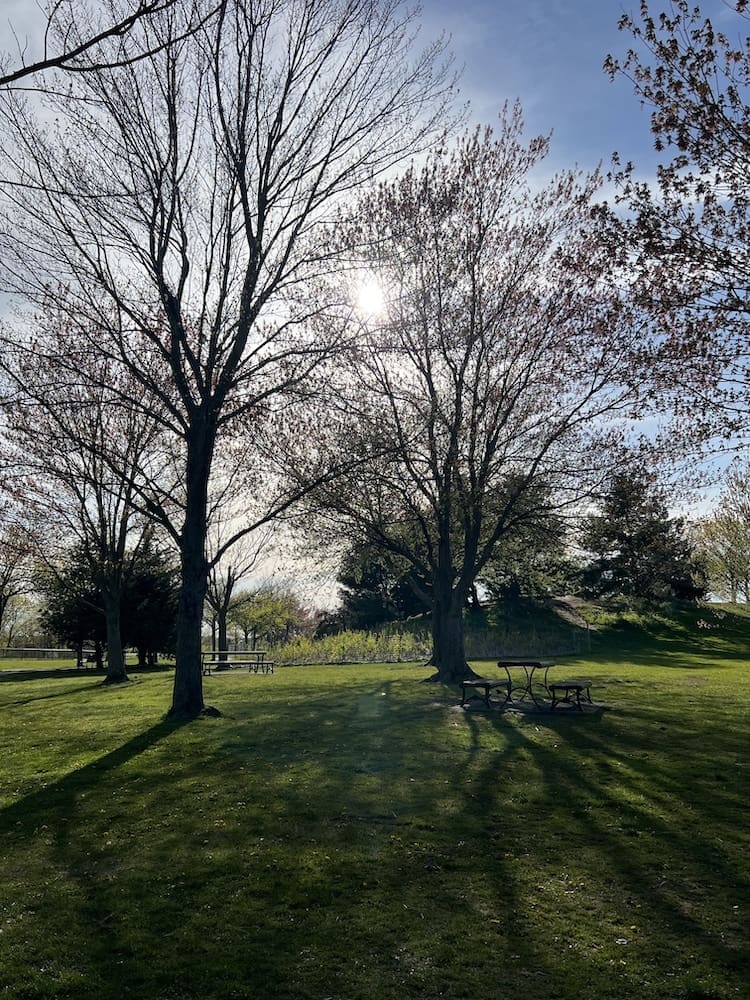
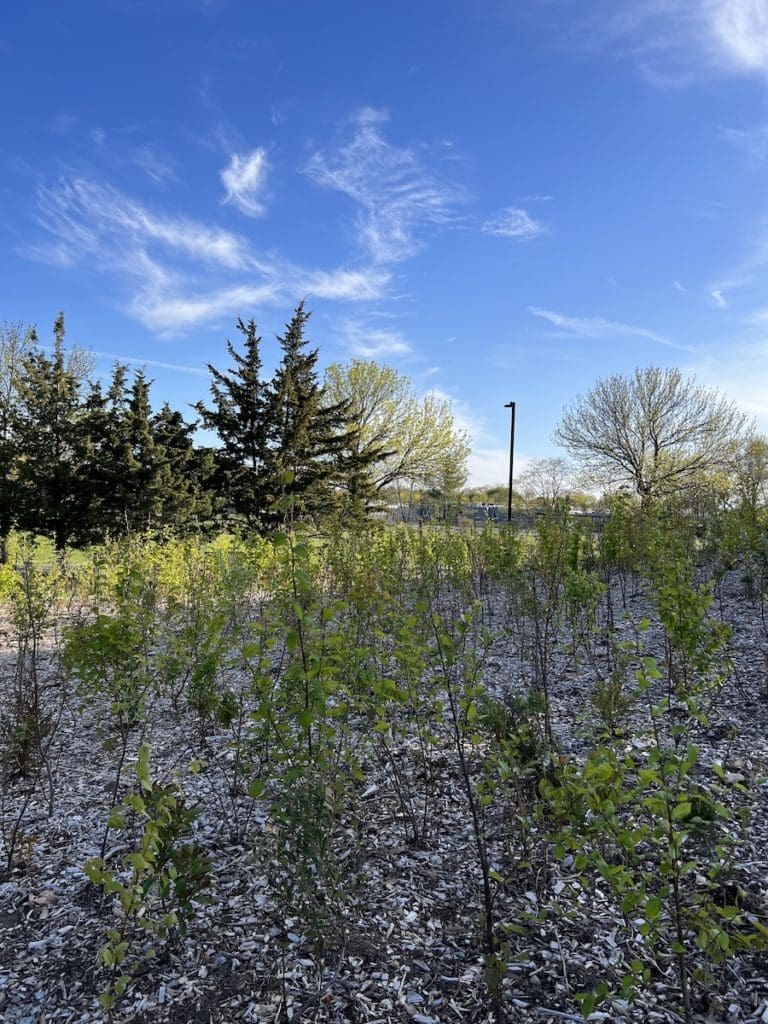
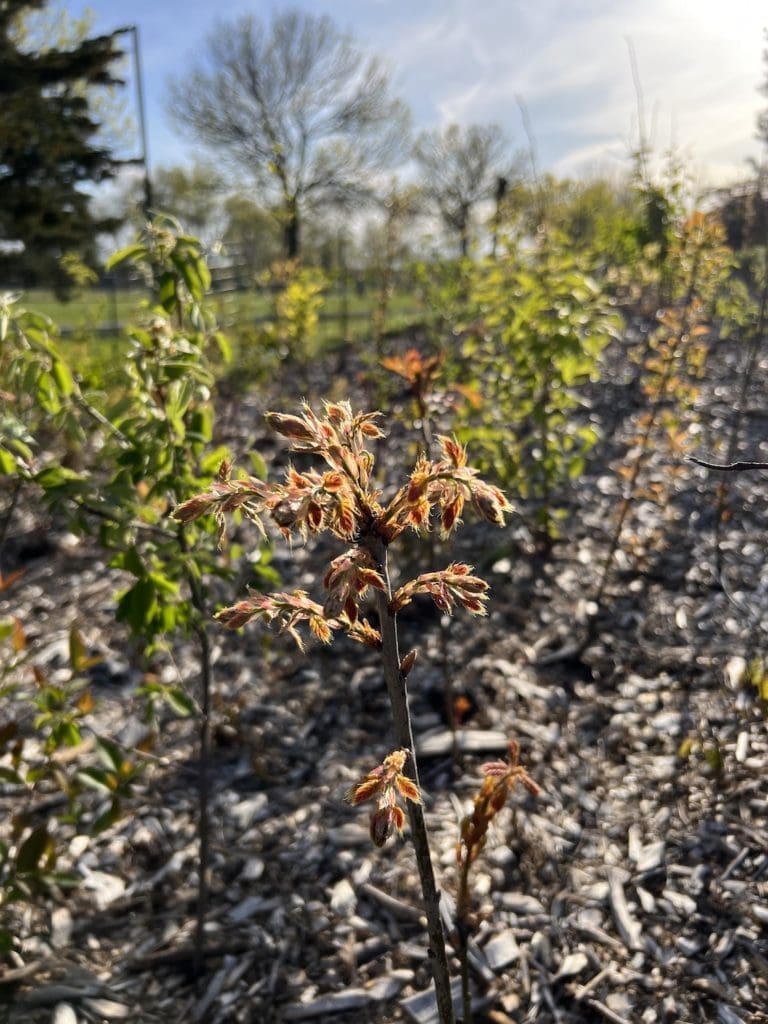
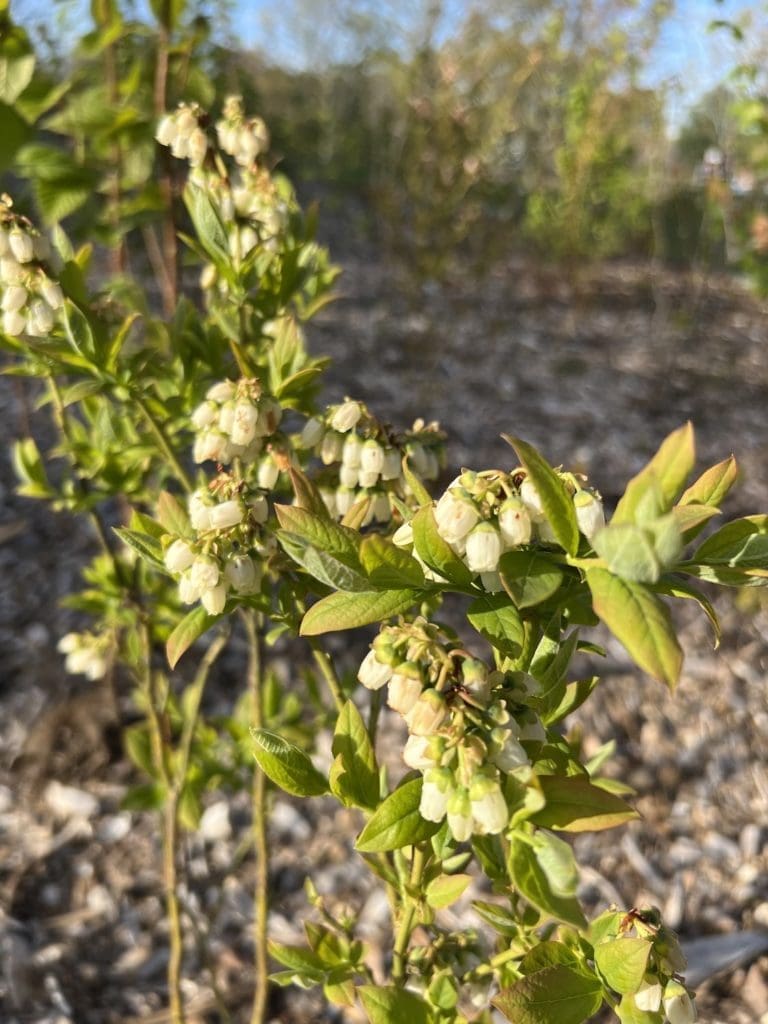
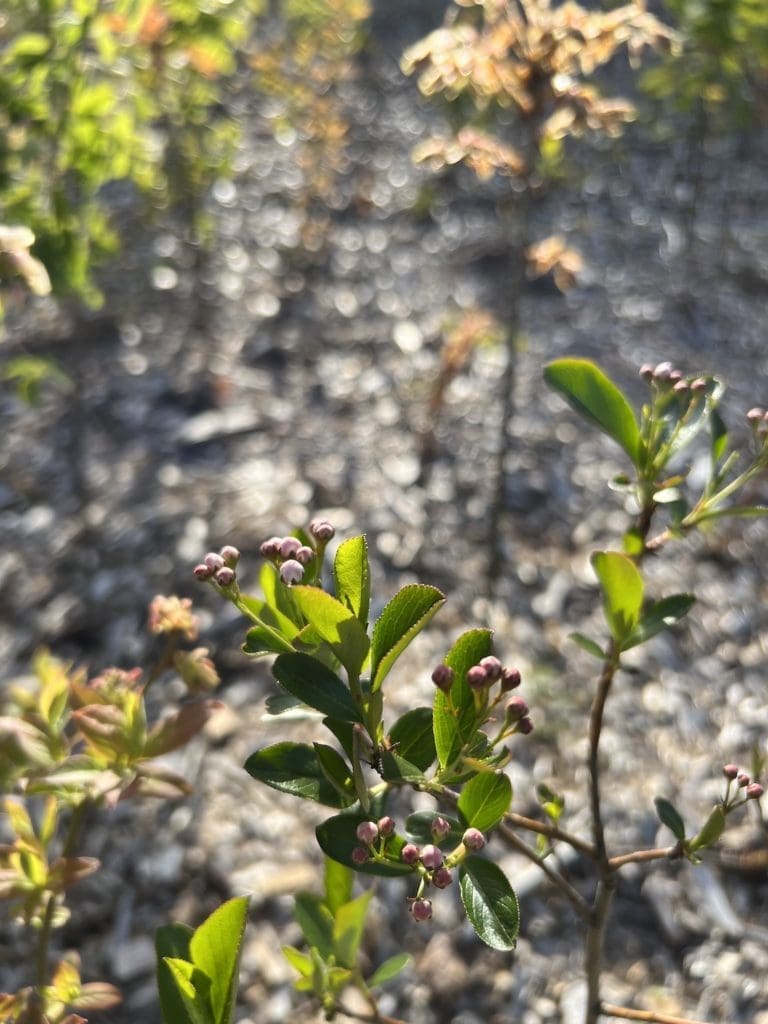
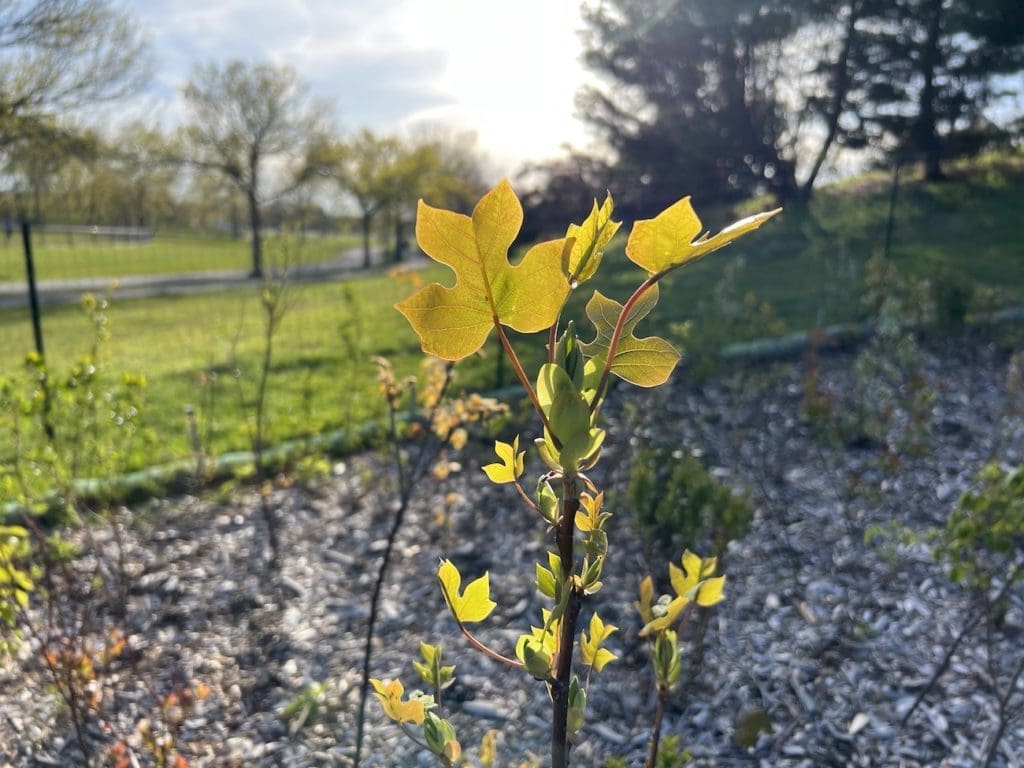
Summer 2022 Update
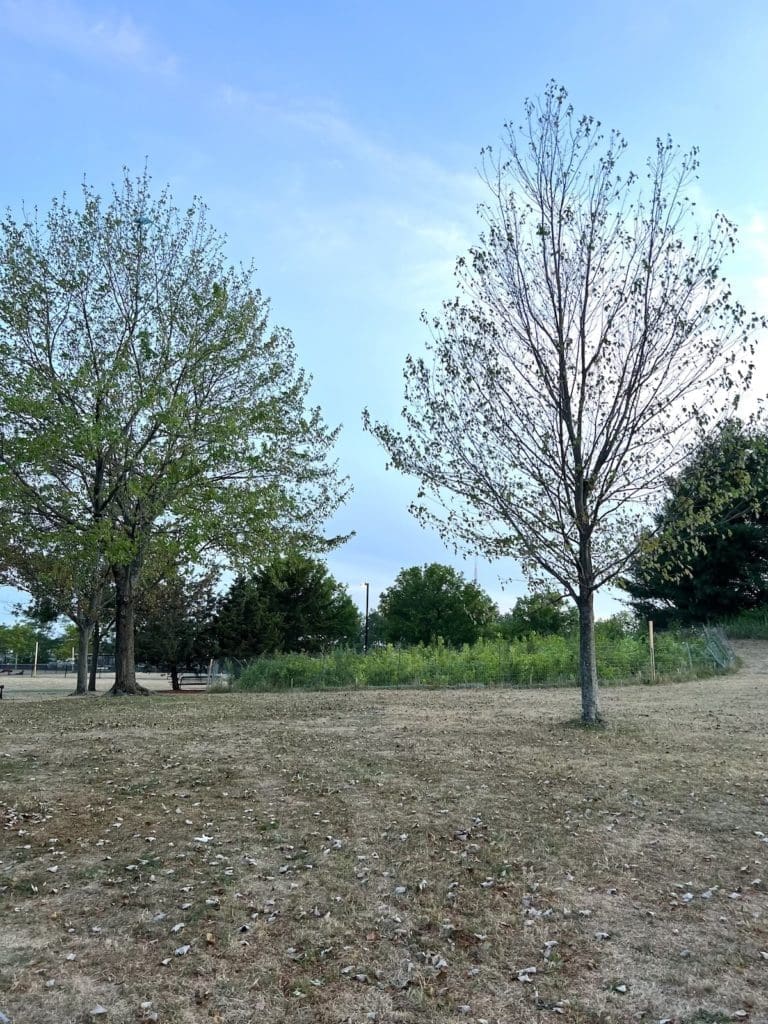
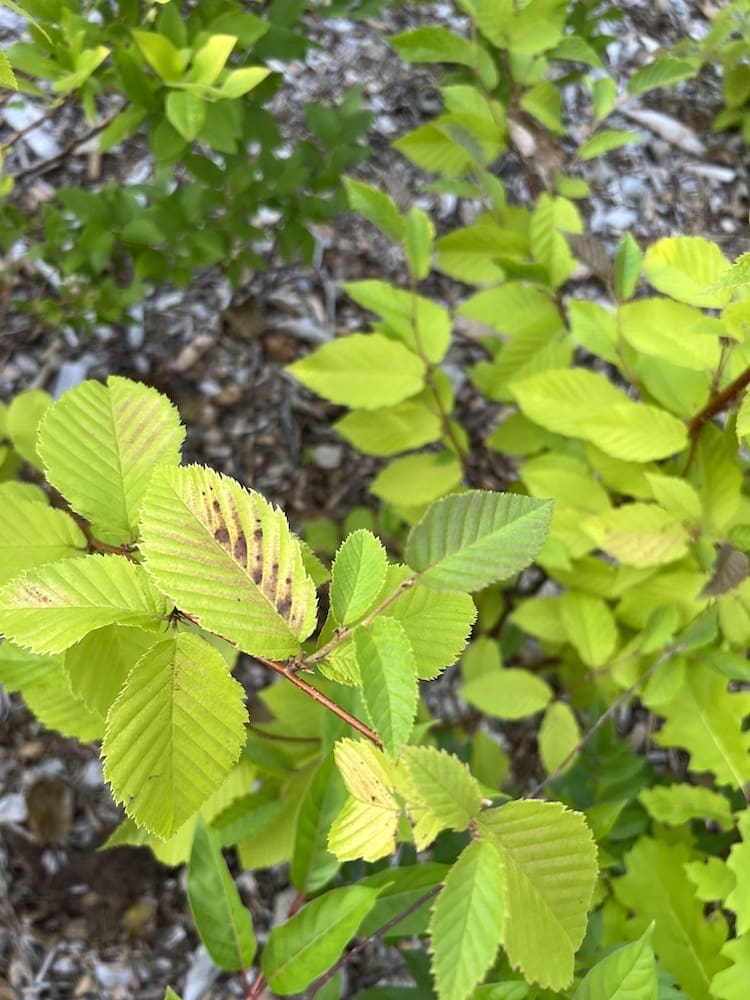
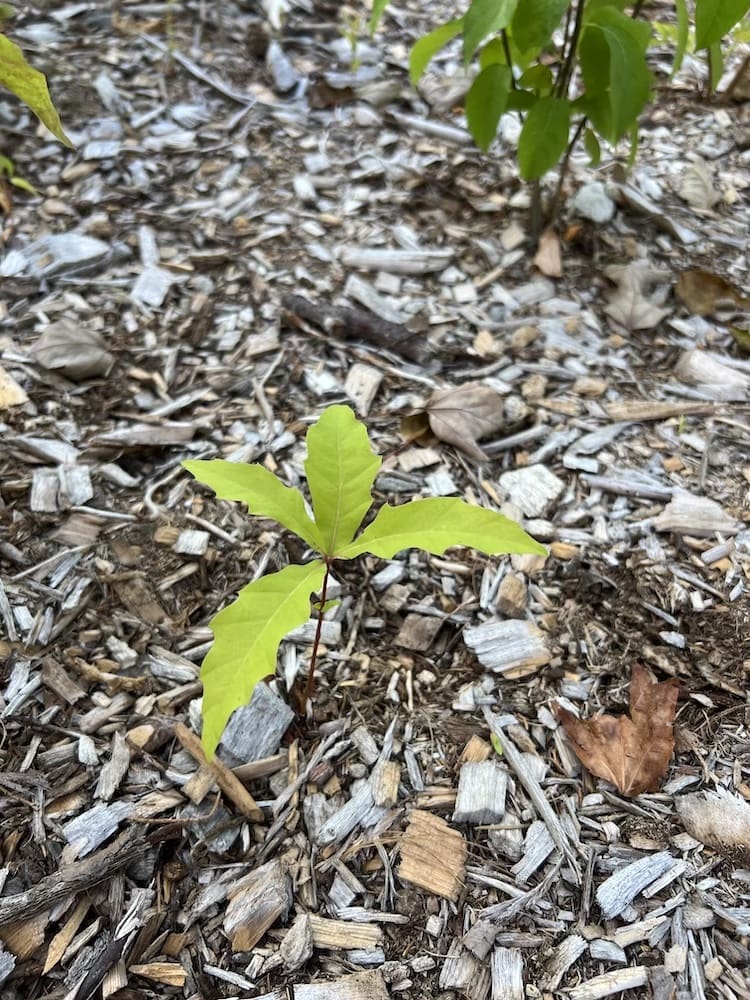
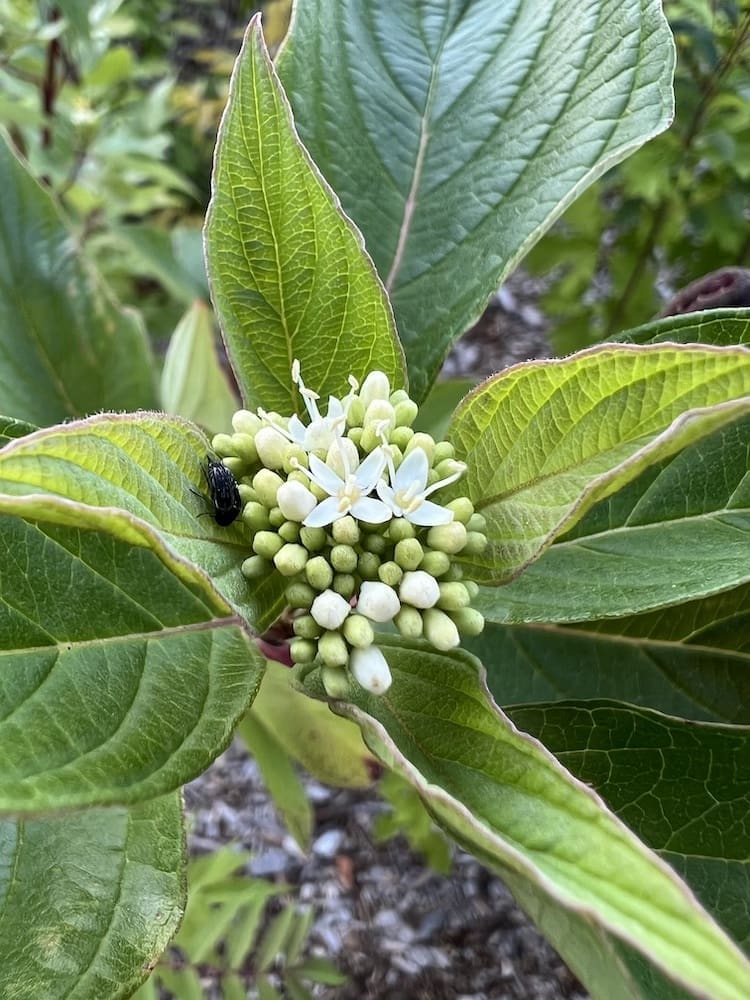
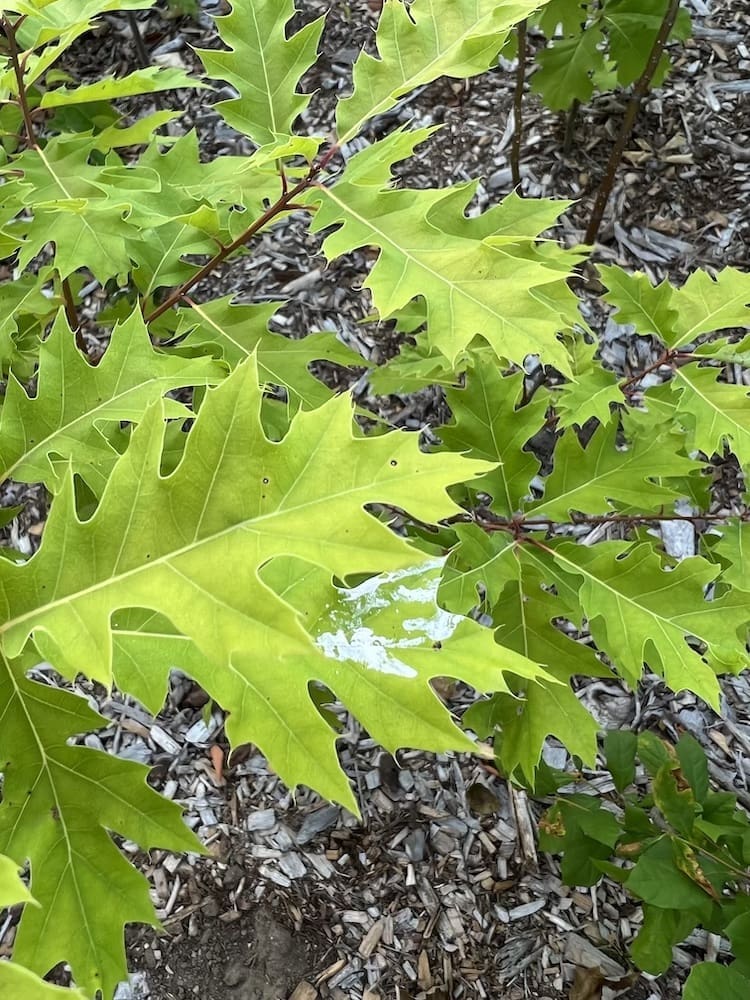
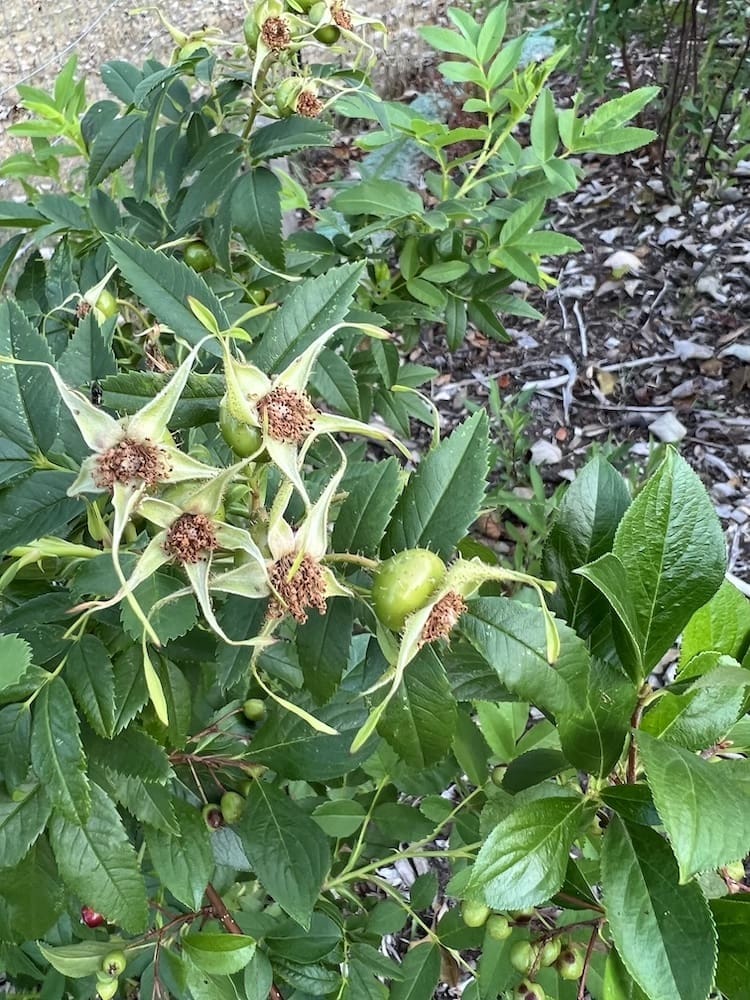
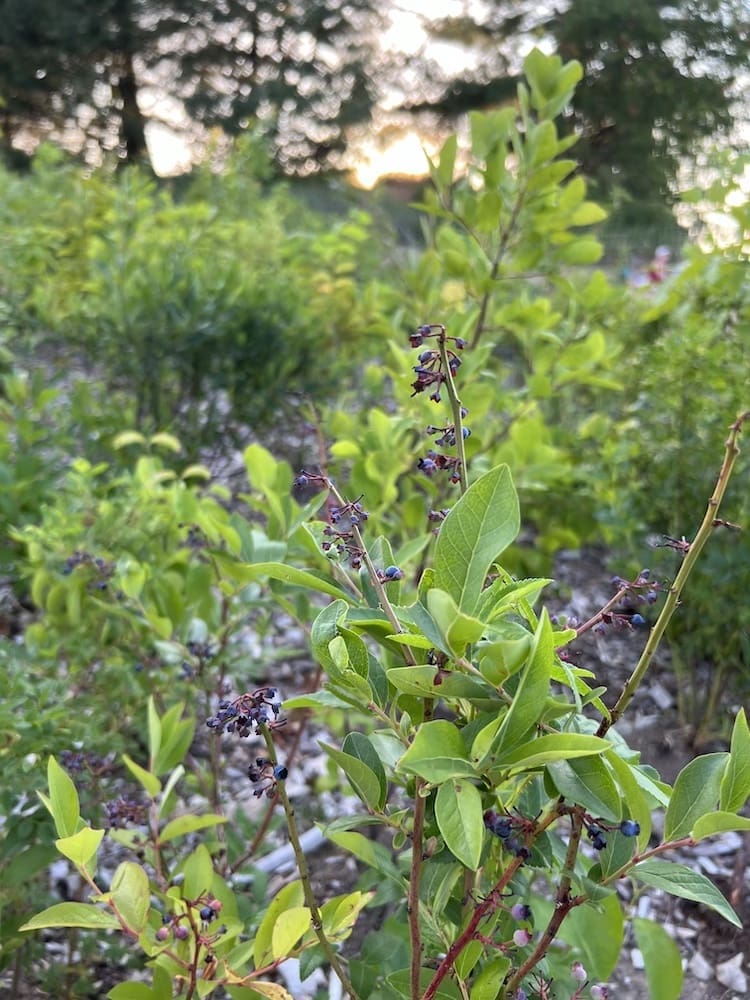
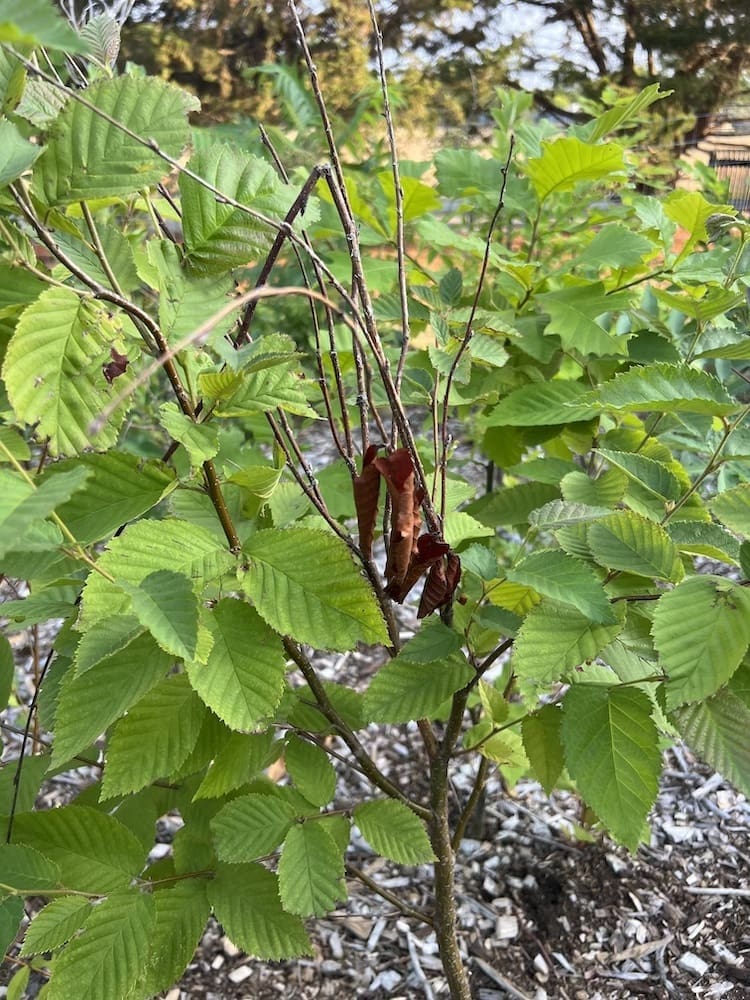
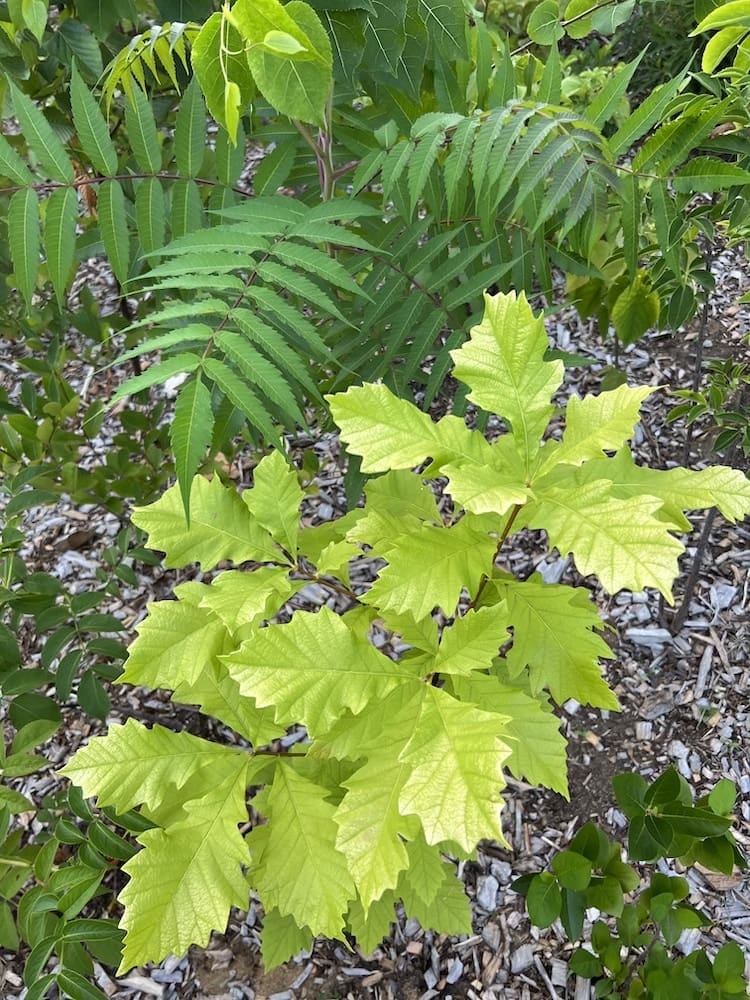
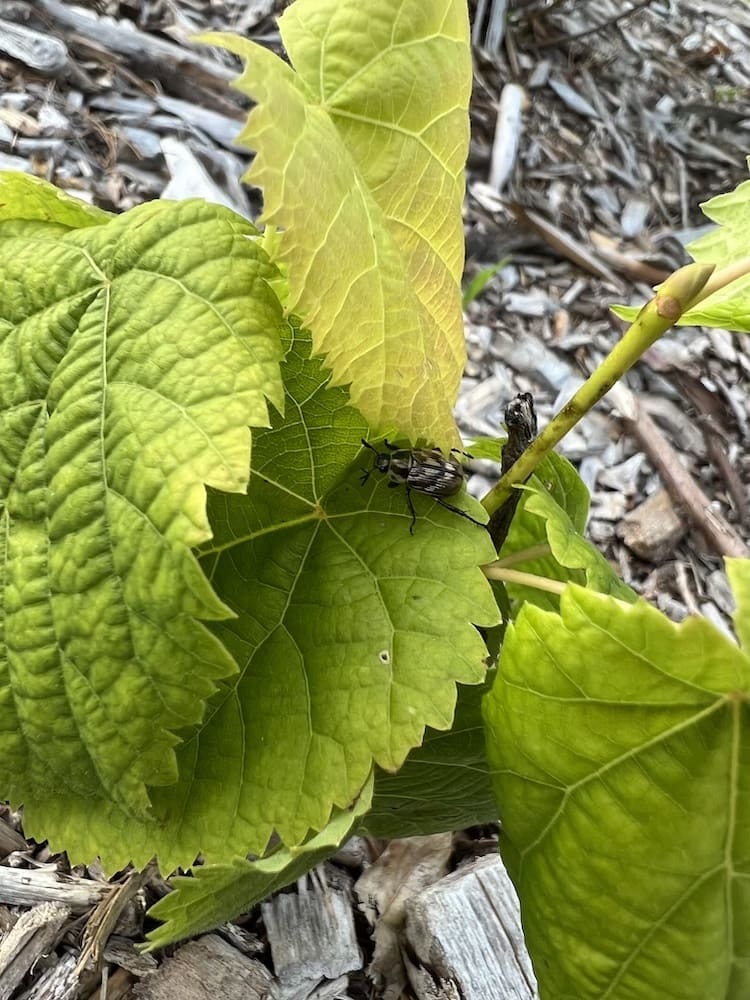
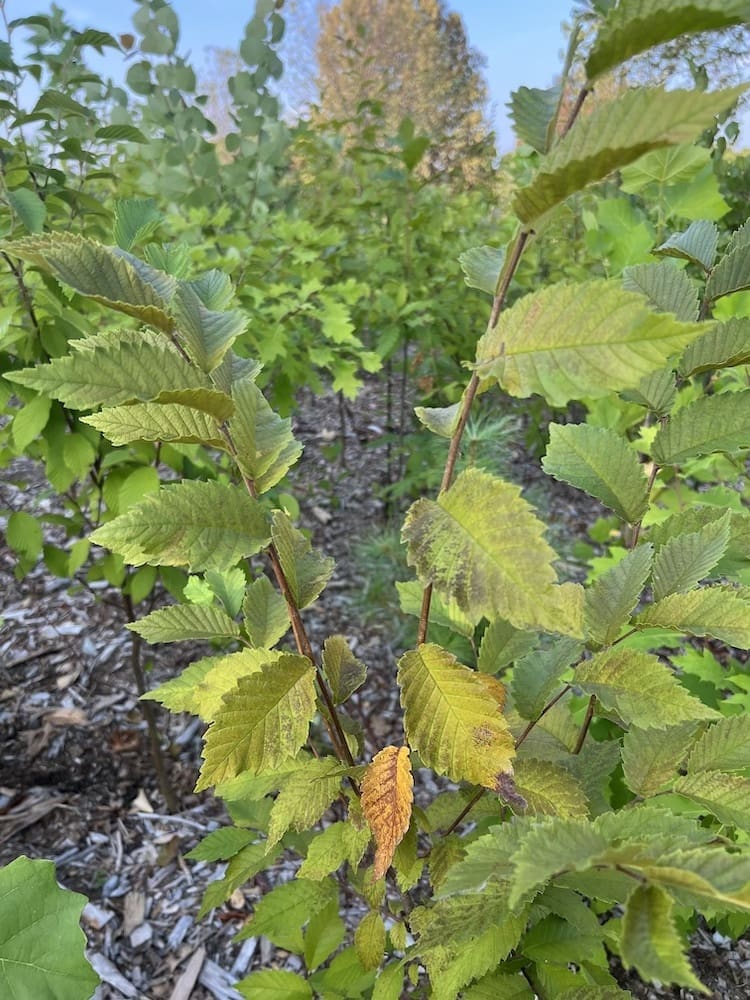
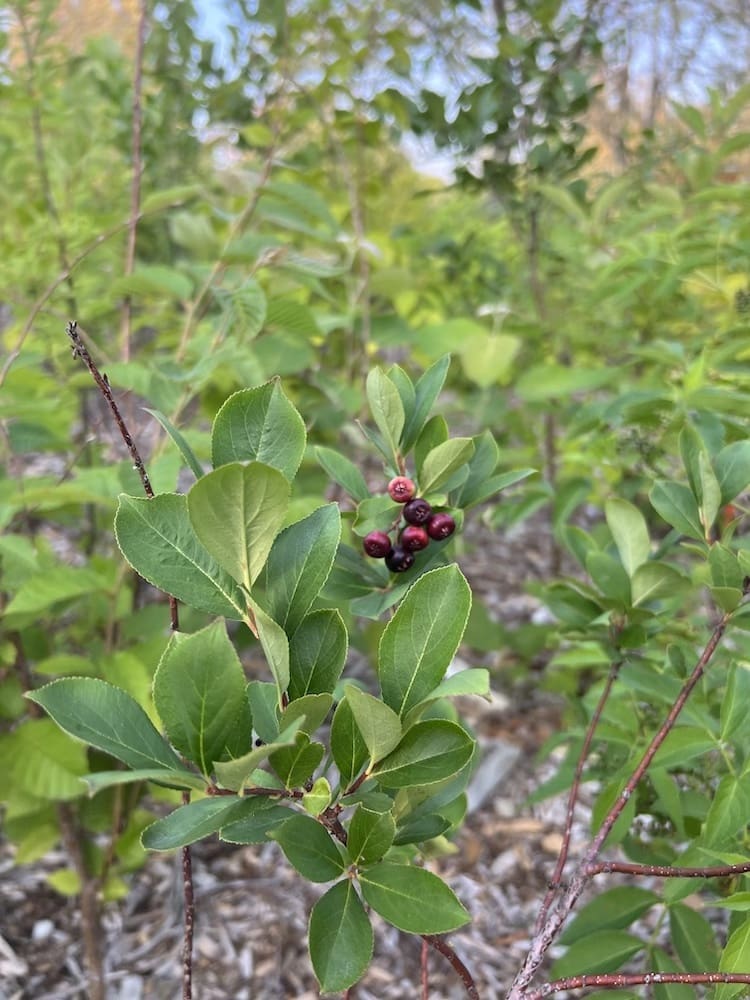
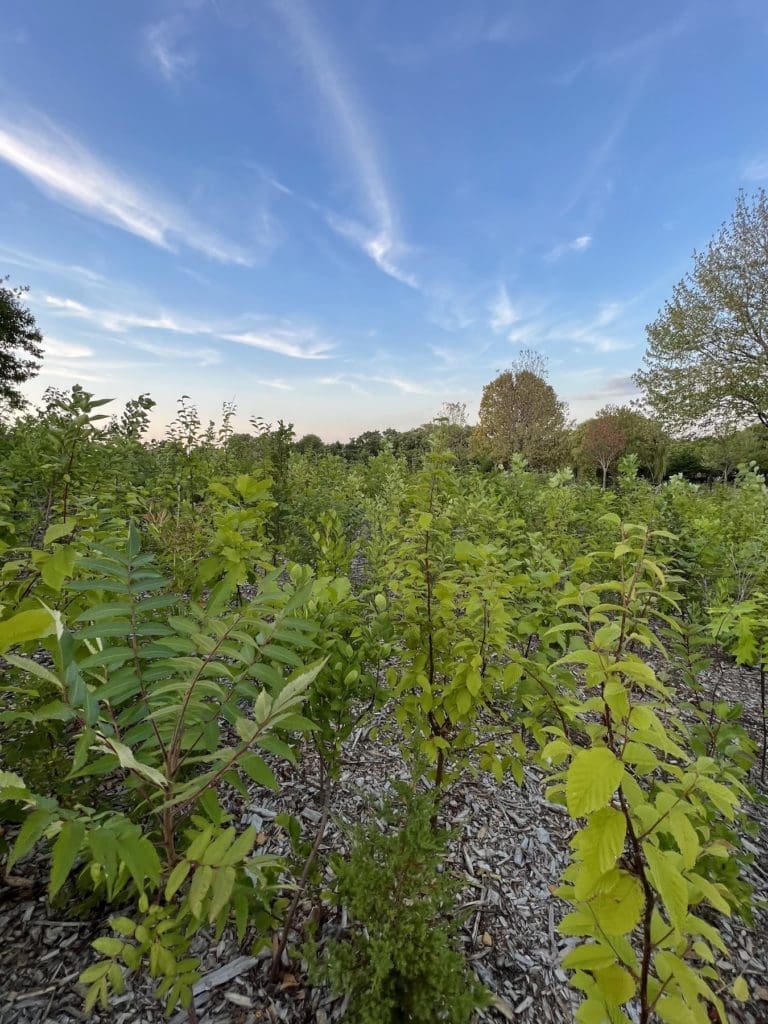
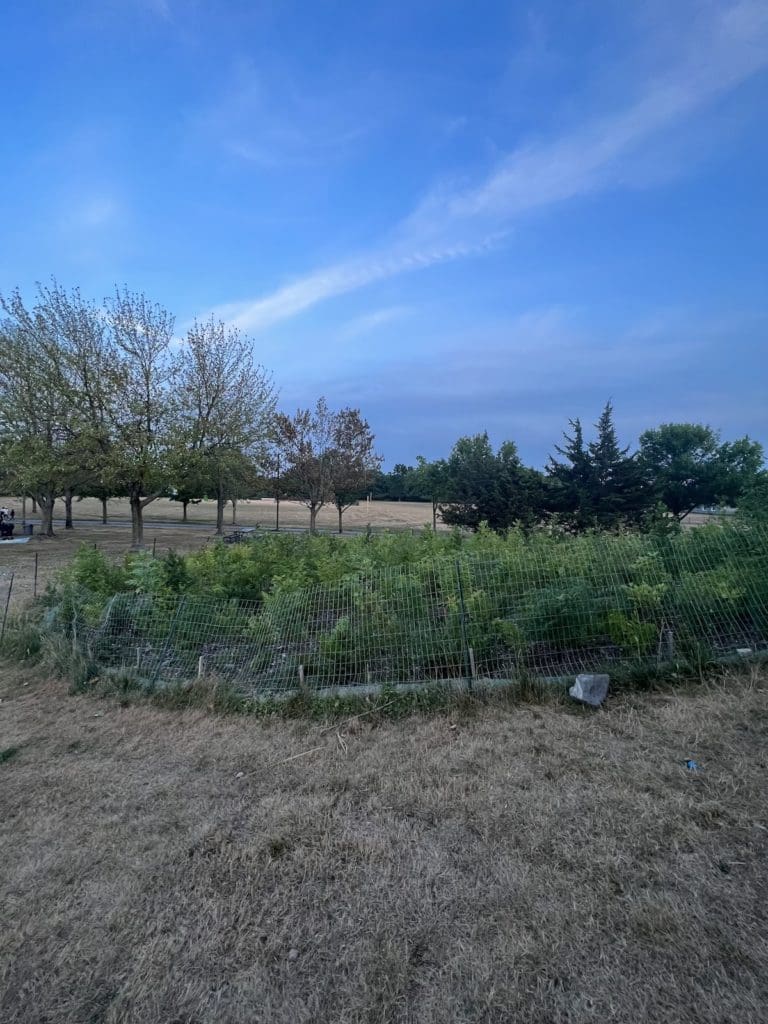
This summer saw drought throughout Massachusetts, and the signs of these extremes from climate change were apparent in lowered water levels in streams, rivers, and ponds, and in vegetation that is drying out and dropping leaves. The Miyawaki forest showed some signs of this stress as well, but we monitored conditions carefully, keeping up with frequent watering through the support of the city to help the young trees through the season.
The forest also showed plenty of growth and life, with a high presence of bees, birds, and dragonflies and other insects, as well earthworms, some mushrooms, and new saplings rooting in the soil.
Fall 2022 Update
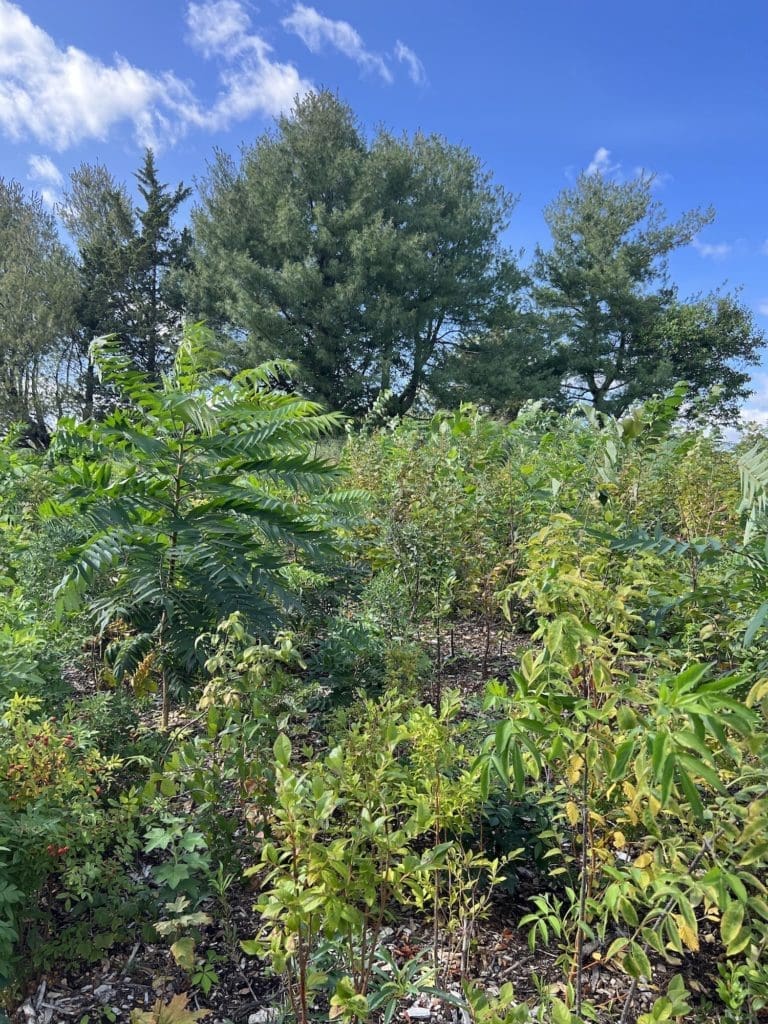
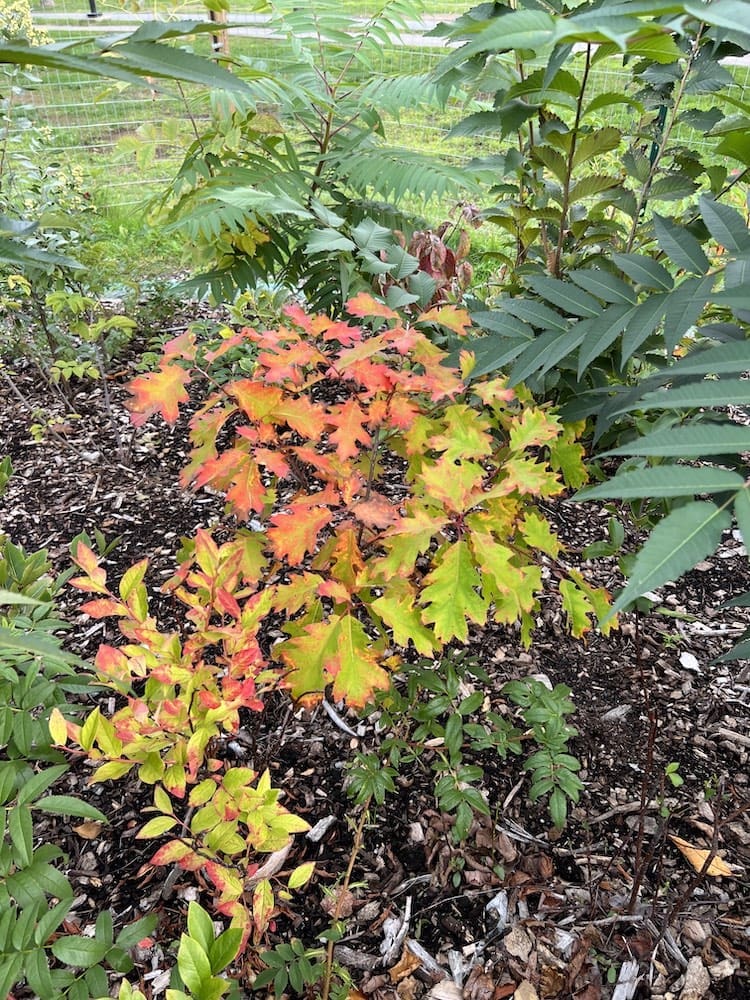
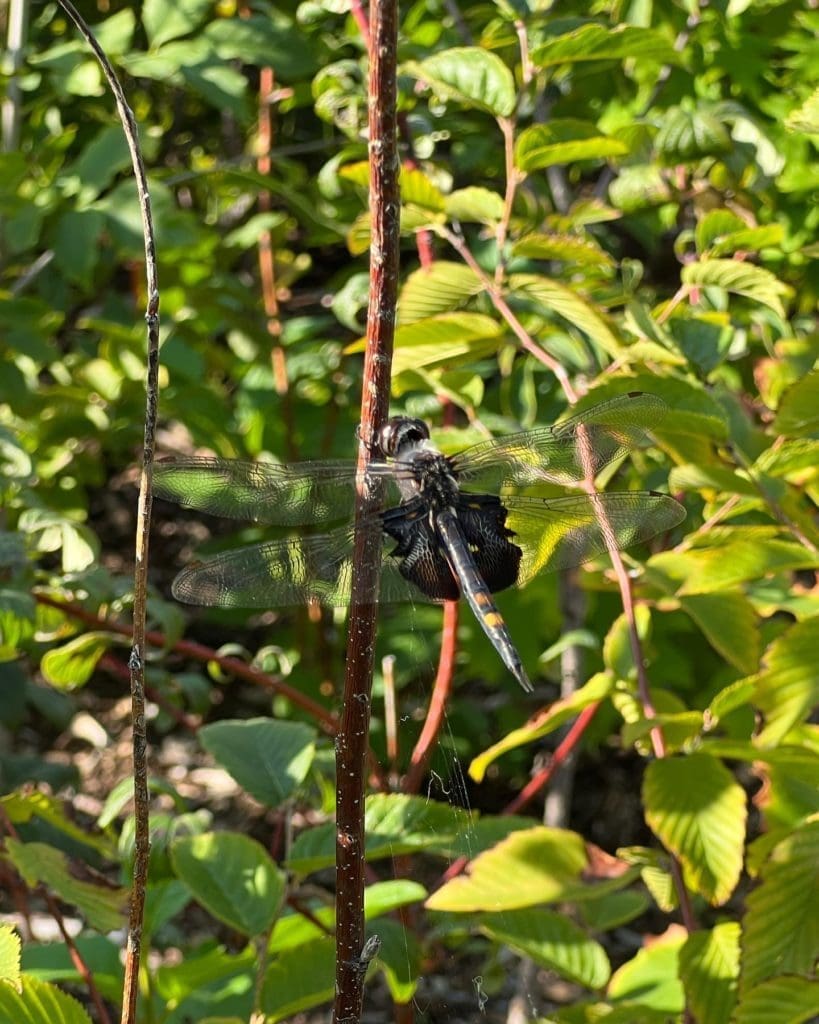
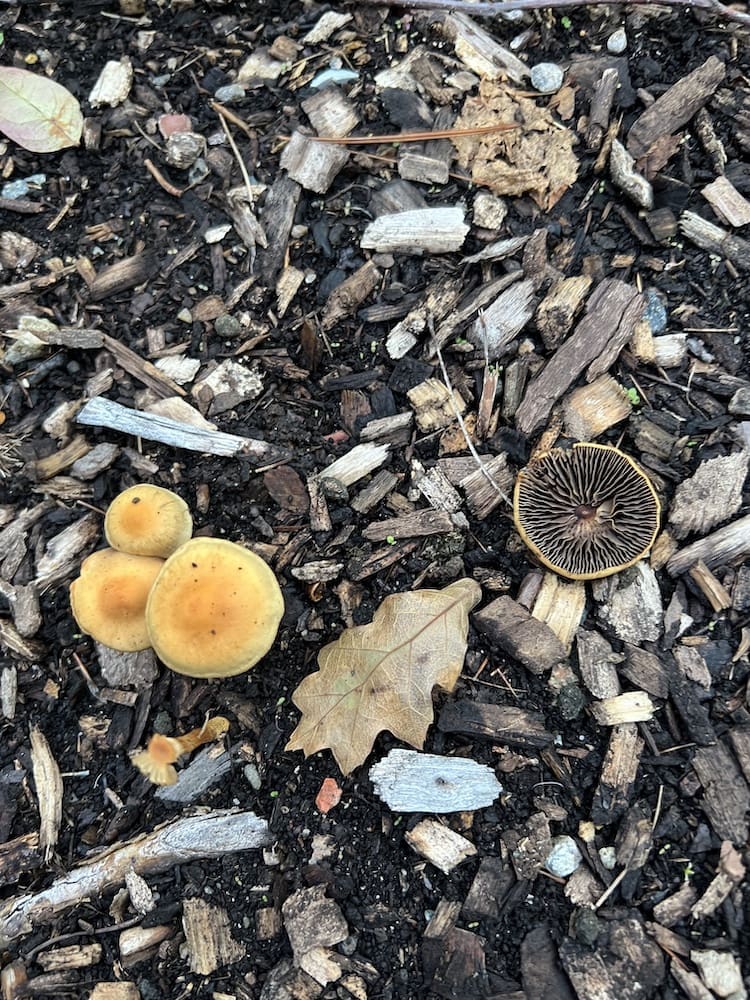
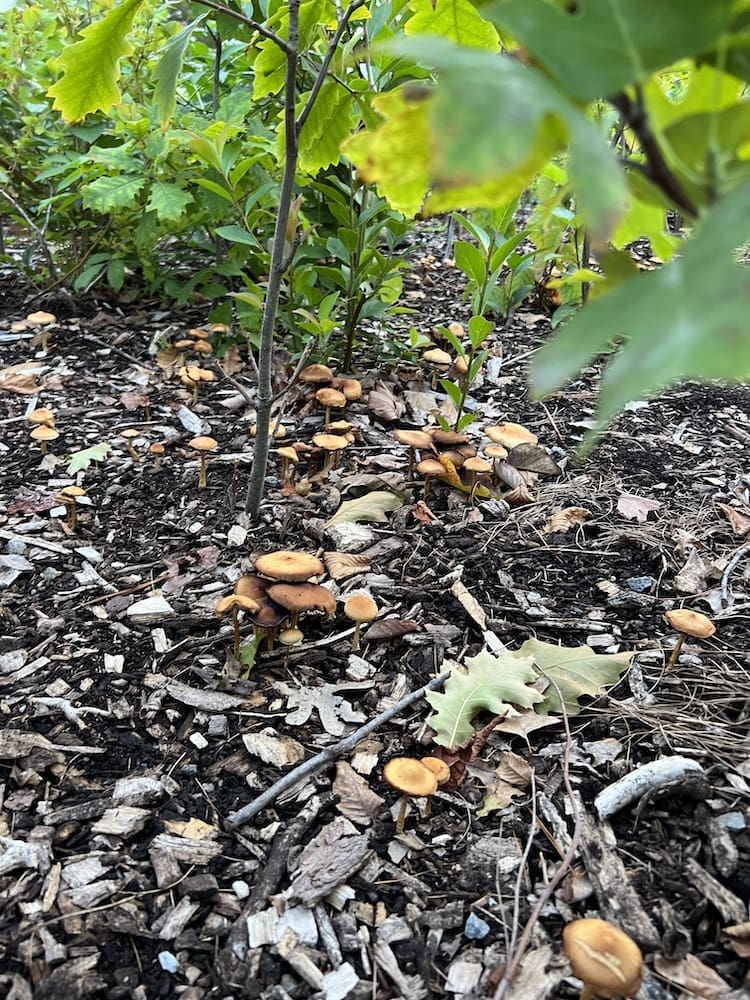
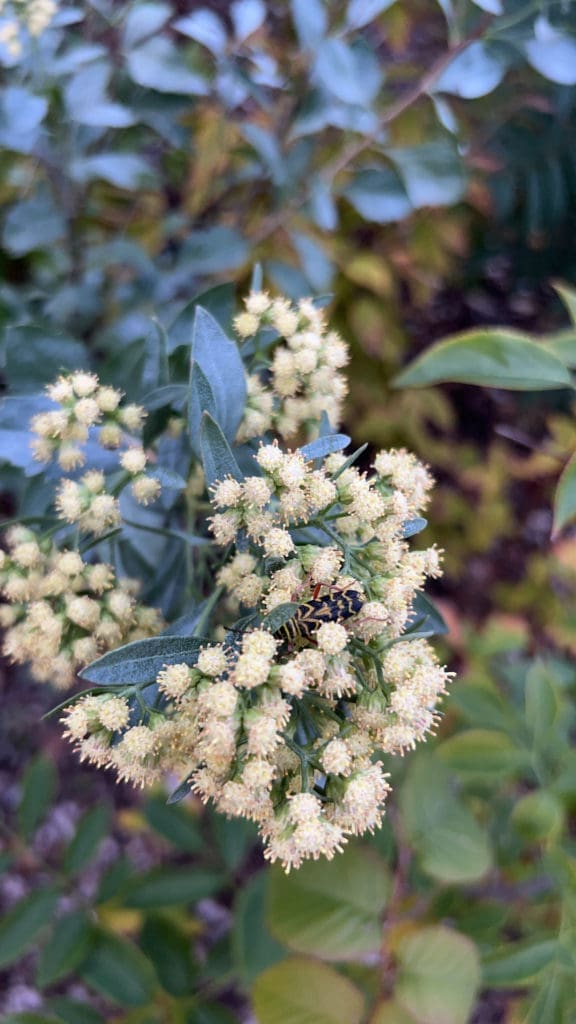
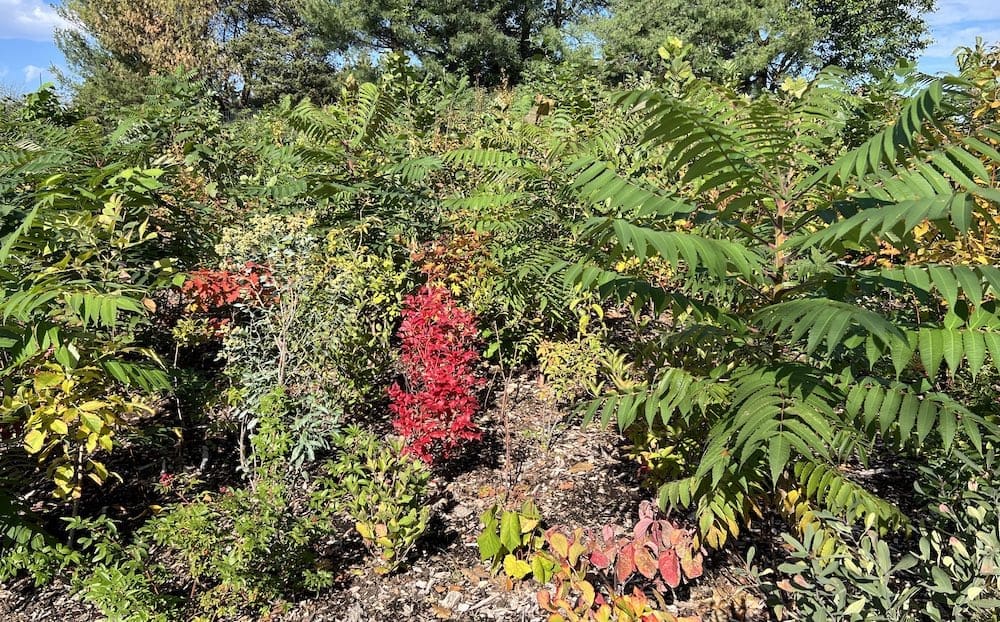
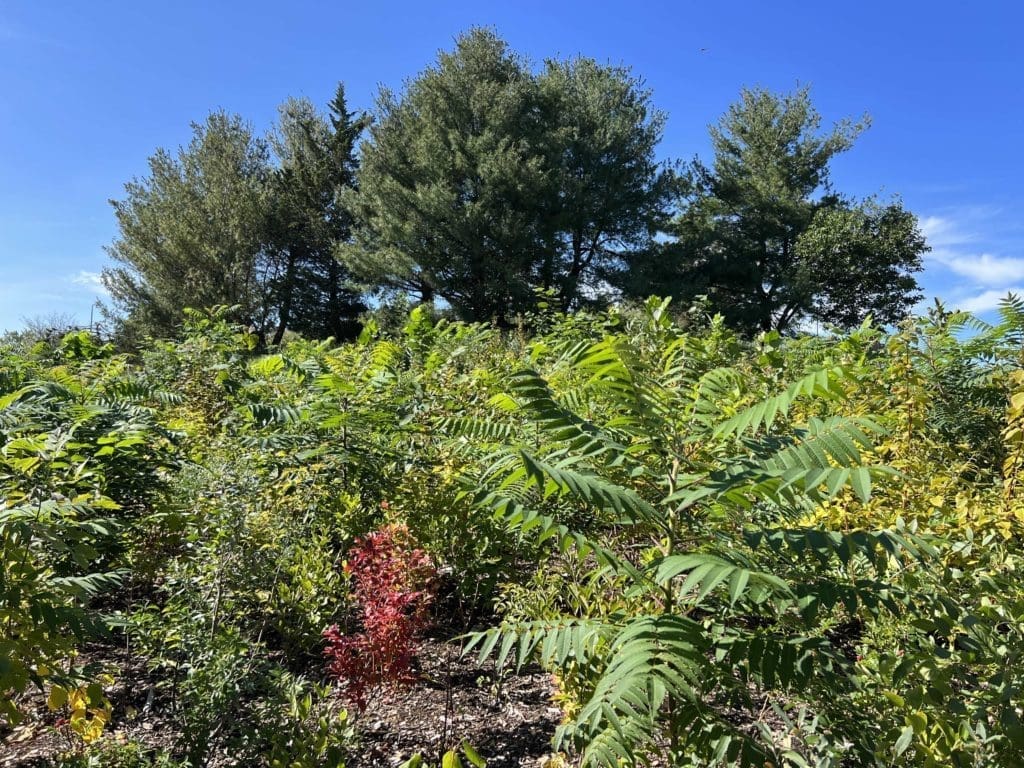
The fall saw an increase in moisture and visible change in the system through foliage change, natural mulching through leaf drop, and the development of fungi visible in fruiting mushrooms.
2023 Update
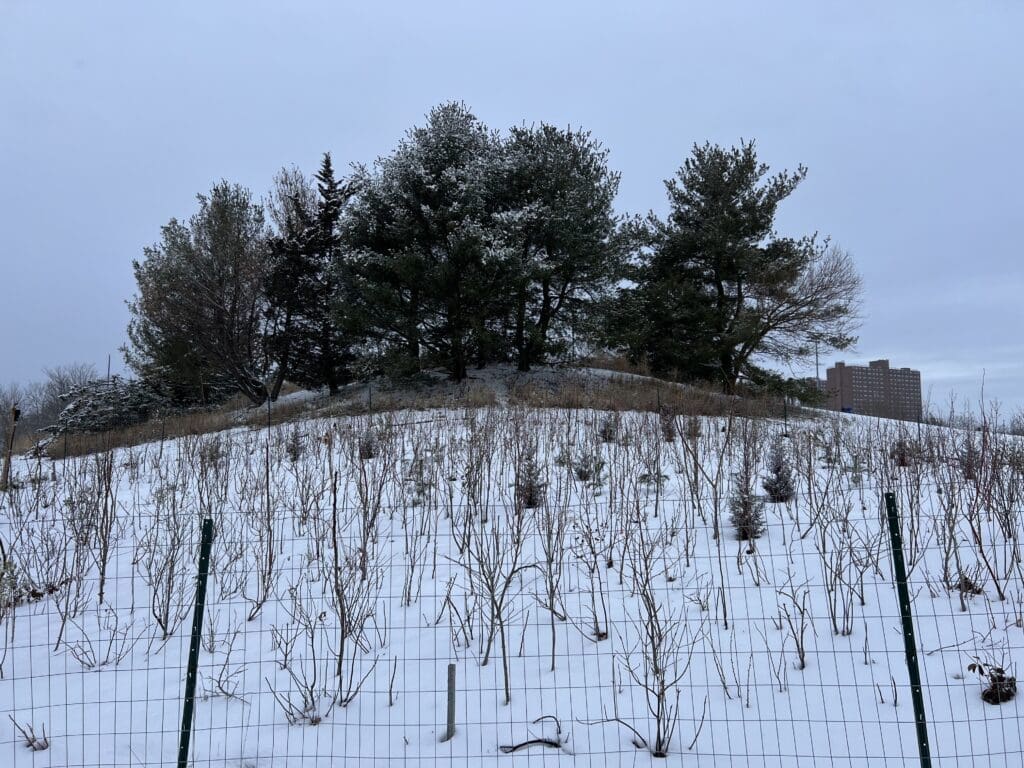
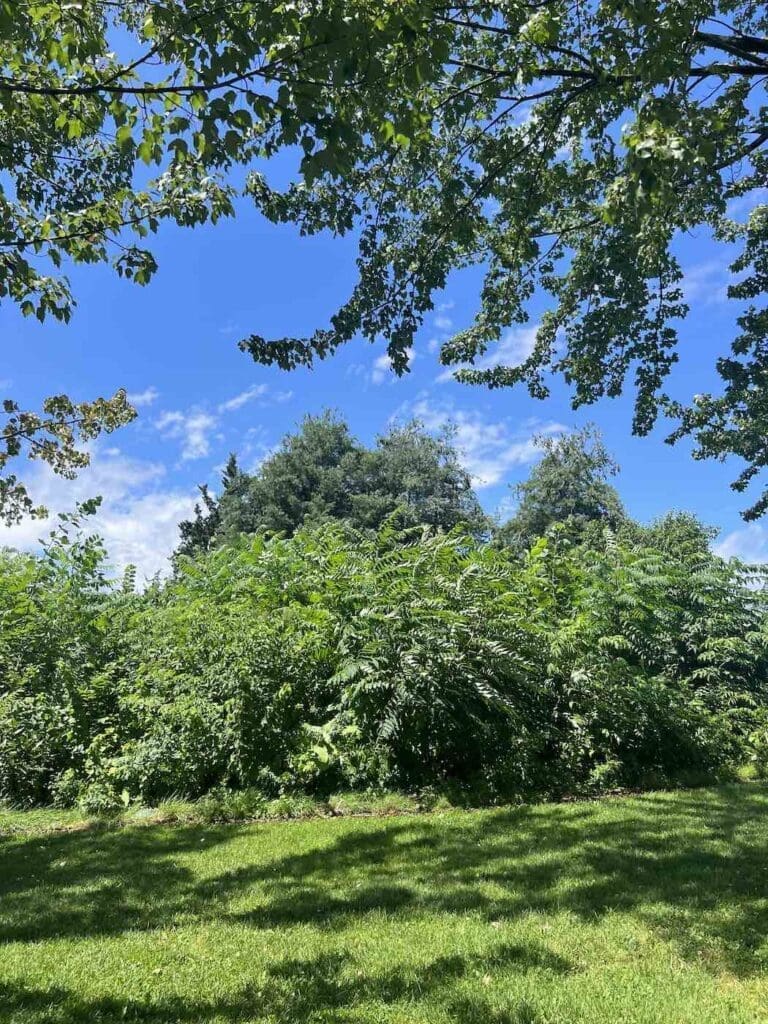
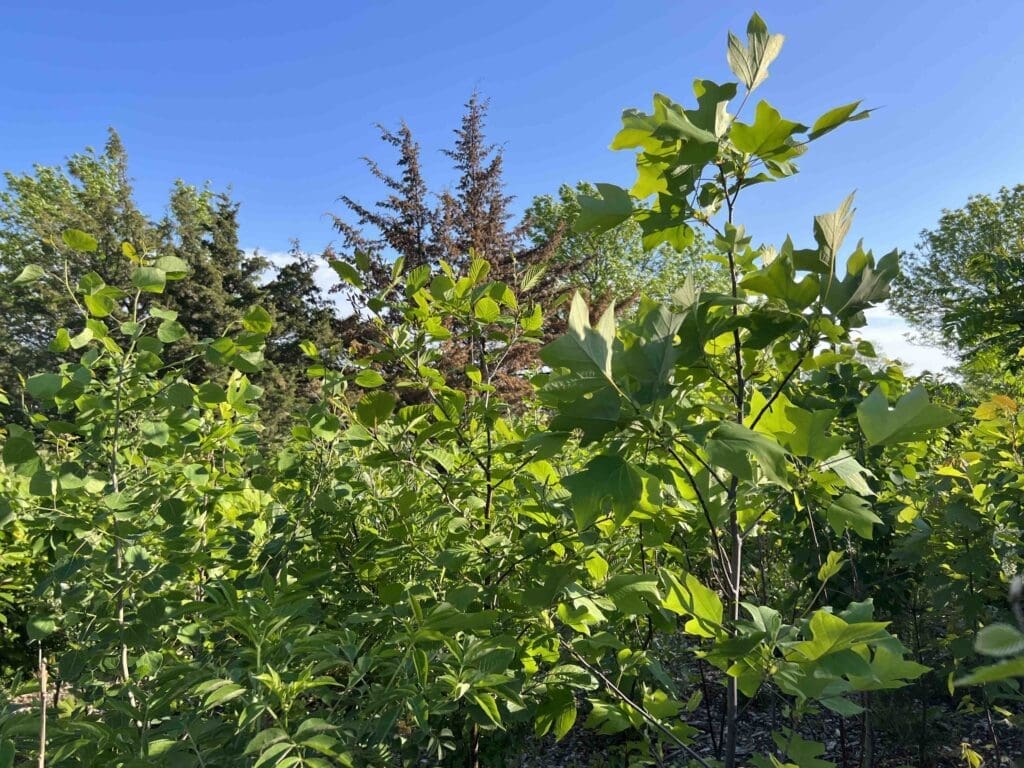
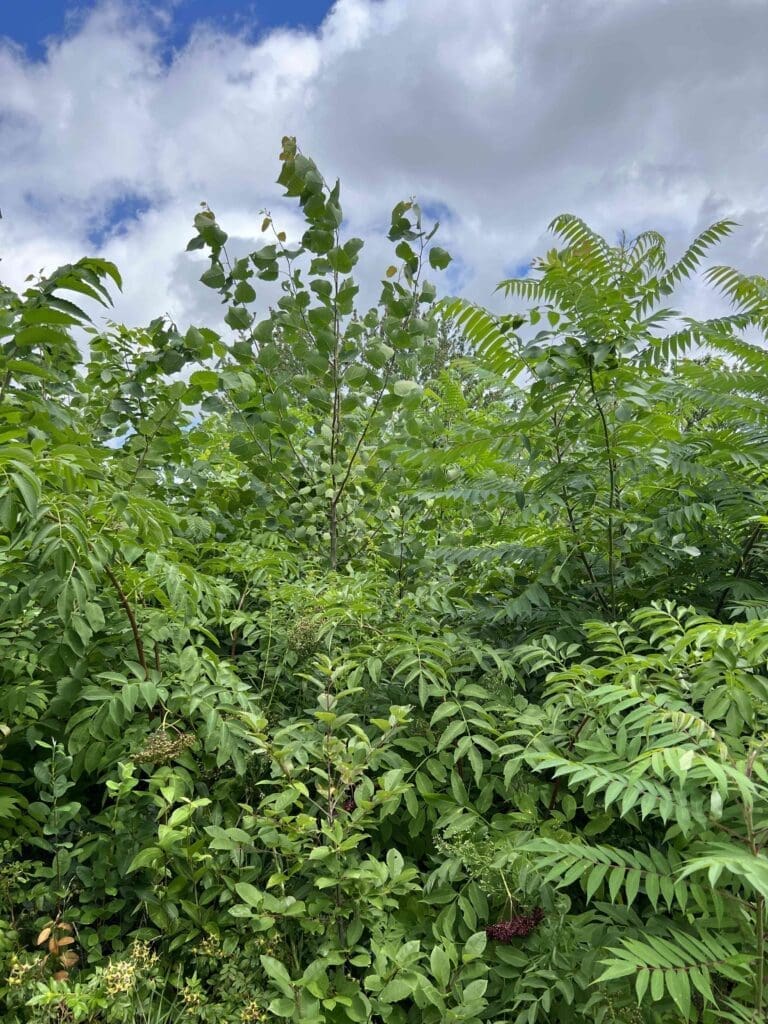
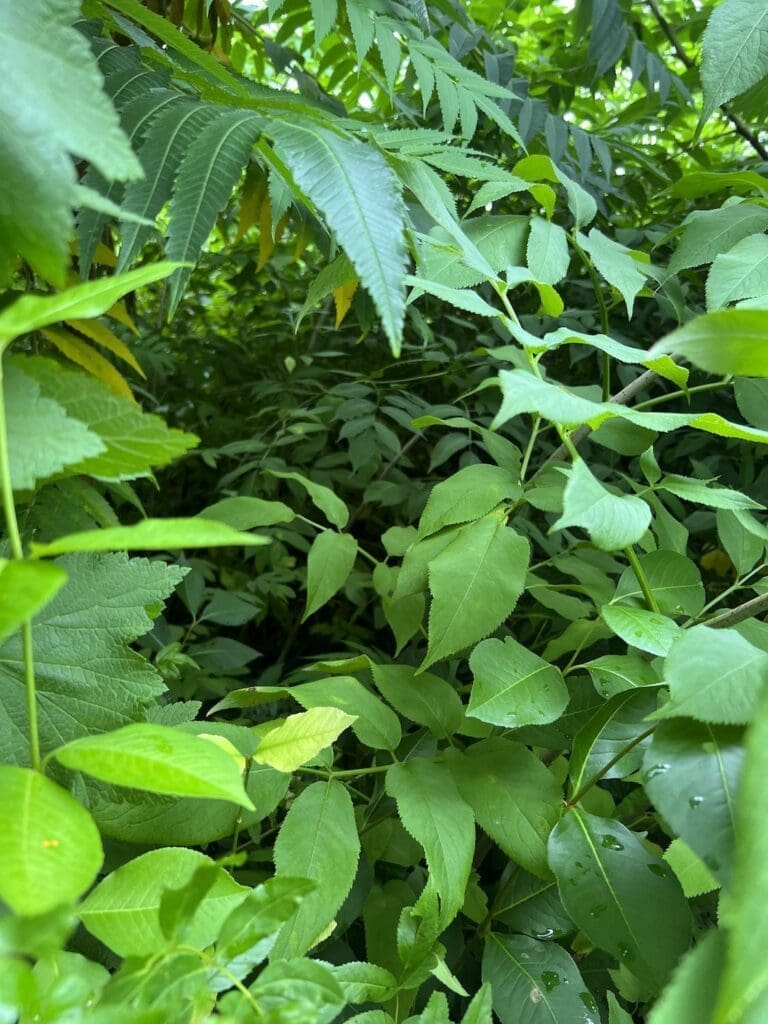
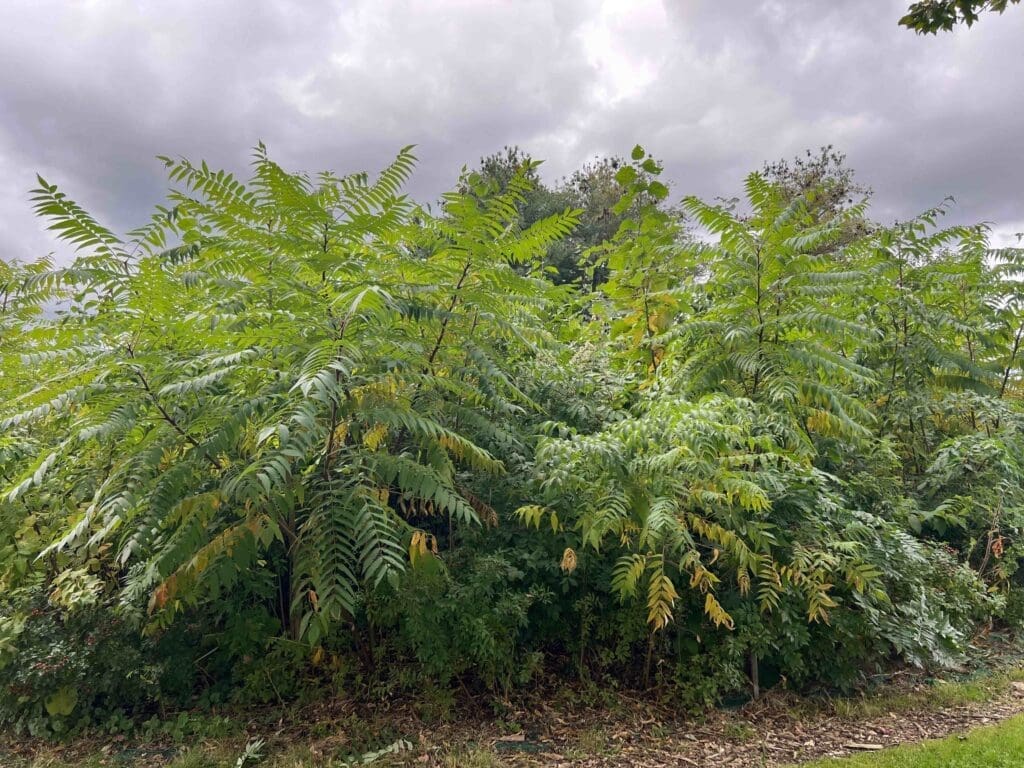
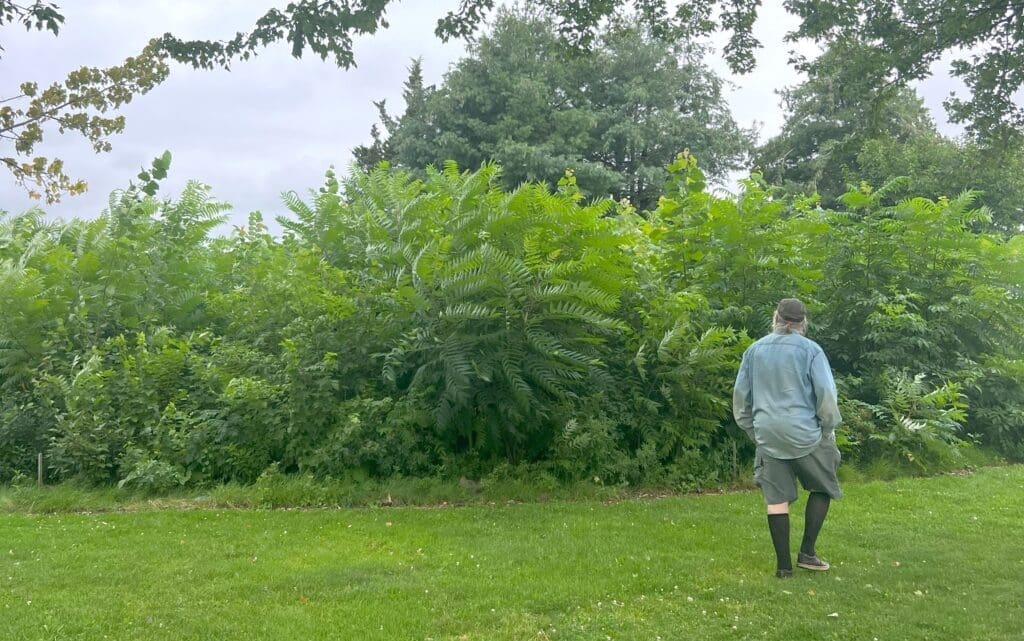
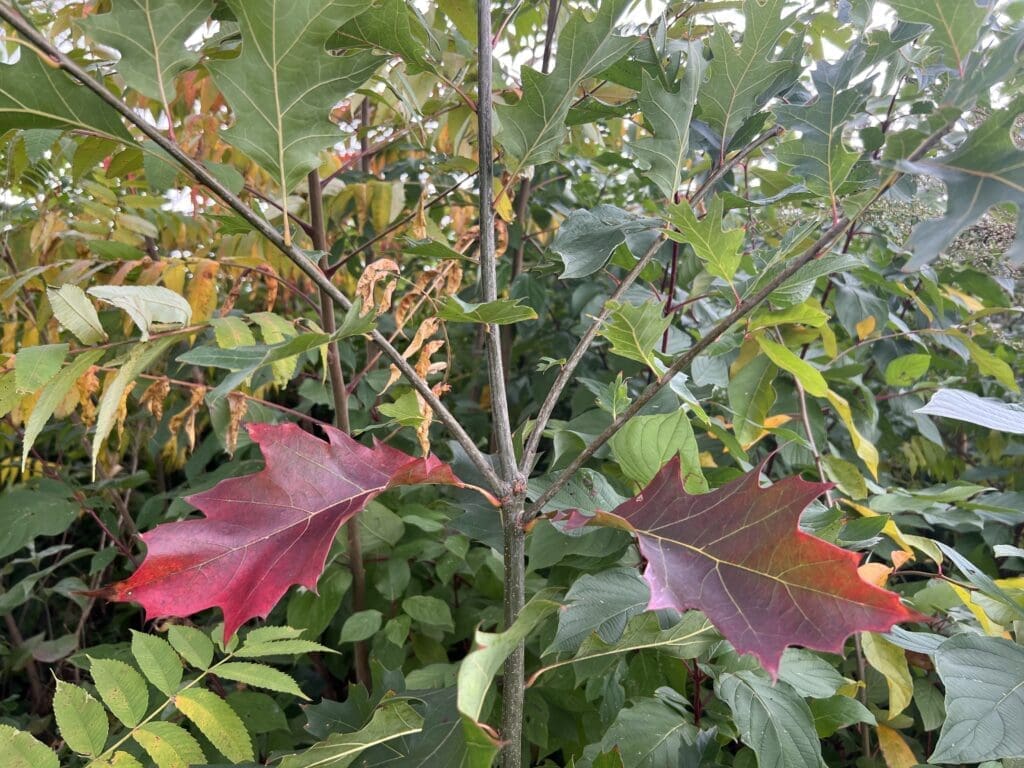
Photos by Maya Dutta, with contributions by Adam Sacks
2023 saw the second full growing season for the Danehy Park Miyawaki Forest, and a massive amount of change. Between January and October, the height of the canopy increased dramatically and the density filled out, creating a dark, moist interior to the forest that began to naturally suppress encroaching growth. Maintenance has still been helpful around the forest edge, but the ecosystem is developing very nicely and biodiversity, from insects and birds to invertebrates and small mammals, is thriving.
Many Thanks
To our forest maker Ethan Bryson, to Andrew Putnam and Cambridge Urban Forestry, to our partners at SUGi, to the Mashpee Wampanoag Tribe, and to Marylee Jones, her mother Marlene and daughter Joelle, and to Kat Livingston for their support in making the Danehy Park Miyawaki Forest happen.
Thank you to all our volunteers and team leaders, and all those who have been supporting this project!

